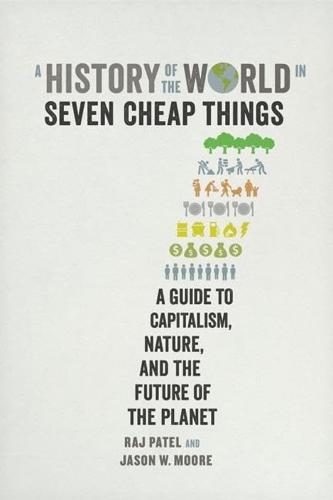
A History of the World in Seven Cheap Things: A Guide to Capitalism, Nature, and the Future of the Planet
by
Raj Patel
and
Jason W. Moore
Published 16 Oct 2017
There were, similarly, spaces for women in the United States to engage in entrepreneurial activities—taking in lodgers, for instance—as long as this was for the good of the household, under the ultimate authority of a man somewhere.68 In Europe, Dutch women from rural areas became domestic workers in cities, formed congresses, and unionized.69 Yet this resistance always happened in the context of other fights. When emerging nationalists in the Global South fought European empires in the nineteenth and twentieth centuries, they enforced boundaries of sexual politics with increasing vigor. Race, class, and gender were produced simultaneously at these frontiers, in ways that affected both men and women.70 Like the study of whiteness, investigations of masculinity and its legal cognates are still relatively new, but it’s a growth industry, and there’s a great deal to learn about the transformations and resistances around kin relationships under hegemonic masculinity.71 AFTER THE PLOUGH What are we to say to those who insist that ploughs aren’t destiny?
…
Original Narratives of Early American History. New York: Charles Scribner’s Sons, 1906. Available at www.gutenberg.org/files/18571/18571-h/18571-h.htm. Colwill, Elizabeth. 1989. “Just Another Citoyenne? Marie-Antoinette on Trial, 1790–1793.” History Workshop 28, no. 1: 63–87. Connell, R.W. 1990. “The State, Gender, and Sexual Politics.” Theory and Society 19, no. 5: 507–44. ———. 1995. Masculinities. Berkeley: University of California Press. Coontz, Stephanie, and Peta Henderson, eds. 2016. Women’s Work, Men’s Property: The Origins of Gender and Class. London: Verso. Corri, Adrienne. 1983. “Gainsborough’s Early Career: New Documents and Two Portraits.”
…
Hewitt de Alcántara, Cynthia. 1973. “The ‘Green Revolution’ as History: The Mexican Experience.” Development and Change 4, no. 2: 25–44. Hildyard, Nicholas. 2016. Licensed Larceny: Infrastructure, Financial Extraction and the Global South. Manchester: Manchester University Press. Hill, Bridget. 1989. Women, Work and Sexual Politics in Eighteenth-Century England. Oxford: Basil Blackwell. Hills, Sally, Ryland Thomas, and Nicholas Dimsdale. 2010. “The UK Recession in Context—What Do Three Centuries of Data Tell Us?” Bank of England Quarterly Bulletin, Q4, 277–91. Hilton, R.H. 1951. “Y eut-il une crise générale de la féodalité?”

Britain Etc
by
Mark Easton
Published 1 Mar 2012
The reality was that it often raised unattainable expectations and was later accused of being a major contributor to marital disillusionment and the rise in the divorce rate. By the end of the 1960s it was clear that government would have to think again if the traditional family was to survive the fallout from revolutionary sexual politics. It was no longer possible to try and shame married couples into staying together. Plan B was to encourage those who did divorce to re-marry. It was an admission that not every couple could or should stay together ‘til death us do part. Instead, the idea was that even when individual marriages failed, the institution would survive.
…
The ‘smallest room’ may offer abundant clues as to how the owner sees themselves, their aspirations and self-confidence. My wife’s grandmother, for example, used to have two supplies of lavatory paper in her highly scented bathroom: soft for the ladies and scratchy Izal for gentlemen callers (as well as her husband). From class values to sexual politics, one learned more about her character and background from a trip to the lavatory than anywhere else. While Britain developed its own unique loo politics based on centuries of subtle toilet-training, elsewhere in Europe and around the world, different historical, religious and cultural forces have been at work.
…
Endeavour; young people political arithmetic, ref1 Pool of London, ref1 poor: and diet, ref1, ref2 and soup kitchens, ref1, ref2 Poor Laws, ref1 Pope, Alexander, ref1 Popinjay (pub), ref1 Portugal, ref1 potatoes: British love affair with, ref1 and Irish famine, ref1 leprosy thought to be caused by, ref1 ‘positive messages’ about, ref1 pottage, ref1, ref2, ref3, ref4 poverty, ref1 academic papers on, ref1 and begging, attitudes to, ref1 and belief in a just world, ref1 Columbia University experiment concerning, ref1 child, ref1, ref2 definition of, ref1 doubts of existence of, in UK, ref1 EEC survey on, ref1 fault line in understanding of, ref1 health problems associated with, ref1 and immigration, ref1 Ipsos MORI focus groups on, ref1, ref2 LWT survey on, ref1 and marriage breakdown, ref1 as measure of social exclusion, ref1 perceived as families’ own fault, ref1 politics of, changes in, ref1 and Poor Laws, ref1 Reformation marks shift in attitudes to, ref1 and Protestant work ethic (PWE), ref1 seen as ‘sin’, ref1 and underclass, birth of, ref1 Powell, Enoch, ref1 power napping, ref1 The Power of Soap and Water (LNADSK), ref1 Pravda, ref1 Prescott, John, ref1, ref2, ref3 Prévost, Abbé, ref1 privacy, ref1, ref2, ref3, ref4 Problem Families Project, ref1 profanity: as African-American vernacular speech, ref1 in name of God, banned, ref1 see also bad language Protestant work ethic (PWE), ref1, ref2 and sleep, ref1, ref2 Provigil, ref1 public conveniences, ref1, ref2 and privacy, ref1 Shy Bladder Syndrome experienced in, ref1 as tourist attraction, ref1 see also toilet(s) public health, ref1, ref2, ref3, ref4, ref5, ref6, ref7, ref8, ref9 Public Health Act (1848), ref1 public open space, ref1 Birkenhead Park, ref1 Central Park, New York, ref1 Derby Arboretum, ref1 and Enclosure Acts, ref1 Green Belt, ref1 Henry VIII appropriates, ref1 Hyde Park, ref1 London parks, ref1 One Tree Hill, ref1 Peel Park, ref1 Philips Park, ref1 Plough Green, ref1 Plumstead Common, ref1 postwar local authorities attempt to restore, ref1 Queen’s Park, ref1 Regent’s Park, ref1, ref2 royal parks, ref1, ref2 St James’s Park, ref1, ref2 shopping mall appropriates, ref1 state of grass in, ref1 Tew Great Park, ref1 public relations, staged nature of, ref1 Public Relations Consultants Association, ref1 public relations industry, ref1 apologies constructed by, ref1 public space: changing character of, ref1 as social ‘glue’, ref1 punk movement, ref1, ref2, ref3 Puritan Commonwealth, ref1 Puritanism, ref1 arrival of, ref1 and profanity, ref1 Putnam, Robert, ref1, ref2 Pygmalion (Shaw), ref1 Qinetiq, ref1 Queen’s Park, ref1 Queensberry Rules, ref1 rabies, ref1 racism, ref1, ref2 and rioting, ref1 see also immigration RAF, ref1 railways, ref1, ref2, ref3, ref4 development of, ref1 early opposition to, ref1 rain-dancing, ref1 Rantzen, Esther, ref1 rap movement, ref1 rationing, ref1, ref2 and class divides, ref1 Rawmarsh School, Battle of, ref1 Rayner, Sir Derek, ref1, ref2 RCDA, ref1 RCP, ref1 Reagan, Ronald, ref1, ref2, ref3 real ale, ref1 Redcliffe-Maud, Lord, ref1 Reformation, ref1, ref2 Regent’s Park, ref1, ref2 Regional Economic Planning Boards, ref1 regions, English, ref1 and the Great North Vote, ref1 ‘regional renaissance’ of, ref1 and TAFKAR, ref1 Reith lectures, ref1 Remembrance, Festival of, ref1 Renaissance, ref1 Report on the Sanitary Conditions of the Labouring Population (Chadwick), ref1 Republic of Ireland, ref1, ref2 republicanism, ref1 restorative justice, ref1 Restrain Abuses of Players Act (1606), ref1 Retiring Rooms, ref1 reverse-SAD, ref1 Reynolds, Stanley, ref1 Rheingold, Howard, ref1 Rhodesia, Unilateral Declaration of Independence, ref1 ribaldry, see bad language Richard I, ref1 Richard the Raker, ref1 Richards, Keith, ref1 Richmond Palace, ref1 riots: 1870, ref1 1958, ref1 race, ref1 2011, ref1, ref2, ref3, ref4 Roberts, Sir Stephen, ref1 Rolleston, Sir Humphrey, ref1 Rolling Stones, ref1 Rose, Denis, ref1 Rosebery, Earl of, ref1 Rosenthal, Norman, ref1 Rotherham, Charles, ref1 Rousseau, Jean-Jacques, ref1 Rowan, Sir Charles, ref1 Rowntree, Seebohm, ref1 Royal Air Force (RAF), ref1 Royal College of Physicians (RCP), ref1 Royal Commission on Aliens, ref1 Royal Family, ref1 as brand, ref1 and the Lord Lieutenant, ref1 media intrusion of, ref1 Royal Parks of, ref1 ‘soap opera’, ref1 Toilet Duck equated to, ref1 value-for-money debate of, ref1 see also Elizabeth II Royal Institution (RI), ref1 Royal Maundy, ref1 royal parks, ref1, ref2 royal ritual: Princess Diana’s death and, ref1 Queen’s coronation and, ref1 Royal Society, ref1, ref2 Royal Society for the Prevention of Cruelty to Animals (RSPCA), ref1, ref2 Royal Statistical Society (formerly Statistical Society of London), ref1, ref2 see also statistics royalty, ref1 critique of, ref1 and Puritanism, ref1 and republicanism, ref1, ref2 see also individuals by name; Royal Family Rubin, Zick, ref1 Ruddles Brewery, ref1 Rural District Councils Association (RCDA), ref1 Russia, ref1, ref2, ref3 Rutland, ref1 Ryno’s Hay Fever and Catarrh Remedy, ref1 SAD, ref1 see also mental health Saddam Hussein, ref1, ref2 St James’s Park, ref1, ref2 Sangster, William, ref1 sanitation, ref1 Sarkozy, Nicolas, ref1, ref2 Savannah Syndrome, ref1 Savoy Hotel, London, ref1 Schkade, David, ref1 Scholar, Sir Michael, ref1, ref2 school: and family break-up, ref1 meals, ref1 meals, free, ref1 ‘reform’, ref1 standards of behaviour in, ref1 see also learning Schwartz, Norbert, ref1 Scotland, ref1 age of criminal responsibility within, ref1, ref2 character of, ref1 devolution in, ref1 historically, ref1 and Scottishness, ref1 tartans of, see Scottish tartan Scotland Yard, ref1, ref2 Scott, Ronnie, ref1 Scottish tartan: clan, ref1 Englishman designs, ref1 kilts, ref1 SCUM, ref1 Seasonal Affective Disorder (SAD), ref1 see also mental health Second World War, see World War Two secularisation, ref1 Select Committee on Public Walks, ref1 September 11 attacks, ref1, ref2 7-Eleven, ref1 sewage, ref1 Sex Pistols, ref1, ref2, ref3 sexism, ref1, ref2, ref3 sexual assaults, ref1 sexual obscenities, ref1 see also bad language sexual politics, ref1, ref2 sexuality, ref1, ref2, ref3, ref4 Shakespeare, William, ref1 Shapps, Grant, ref1 Sharia law, ref1 Sharman, Julian, ref1 Shaw, George Bernard, ref1 Shetland Islands, ref1, ref2 Shils, Ed, ref1 Shipman, Dr Harold, ref1 shopping malls, ref1 shopping patterns, ref1, ref2 Shy Bladder Syndrome (paruresis), ref1 siesta, ref1 see also sleep Silicon Valley, ref1 silly hats, ref1 Sims, Chris, ref1 Sims, George, ref1 Single Convention on Narcotic Drugs, ref1 ‘sit or squat’ debate, ref1 sleep, ref1 attitudes towards, ref1 and bed sizes, ref1 and consumer revolution, ref1 deprivation, ref1, ref2, ref3; see also insomnia and drugs, ref1, ref2 and electric lighting, ref1 experts on, ref1 going without, record for, ref1 and laudanum, ref1 myths, ref1, ref2 philosophy of, ref1 pills, ref1, ref2 and power napping, ref1 research, ref1, ref2 and sloth, ref1, ref2 and stimulants, ref1, ref2 time spent, ref1, ref2 ‘trendy’ research on, ref1 Victorian attitudes towards, ref1 web-based survey of, ref1 sleep deprivation, ref1 ‘The Sleep of School Children’ (Terman & Hocking), ref1 Sleepio, ref1 Slovakia, ref1 Smalley, Sir Herbert, ref1 Smith, Percy, ref1 social capital, ref1 social class, see class social interaction, and Internet activity, ref1 Social Issues Research Centre (SIRC), ref1, ref2 Society for Cutting Up Men (SCUM), ref1 Society for Investigating the Causes of the Alarming Increase of Juvenile Delinquency, ref1 Soham murders, ref1, ref2 sonic weapon, ref1 soup kitchens, ref1, ref2 South Asian community, ref1 see also immigration South East Asia: drugs from, ref1 tsunami in, ref1 Soviet Union, collapse of, ref1 Spain, ref1, ref2, ref3 Spear, Bing, ref1 Spencer, David, ref1 spin doctors, ref1 Squidgygate, ref1, ref2 SS Empire Windrush, ref1 SS Great Eastern, ref1 standardisation, ref1 Stanford University, ref1, ref2 State Opening of Parliament, ref1 Statistical Society of London (later Royal Statistical Society), ref1 see also statistics statistics, ref1 crime, ref1 and knife crime, ref1, ref2 ‘lies, damned lies and’, ref1 public view of government manipulation of, ref1 societal well-being measure by, ref1 and technology, ref1 see also Central Statistical Office; Royal Statistical Society; Statistical Society of London; Statistics Commission; Statistics and Regulation Service Act; United Kingdom Statistics Authority Statistics Commission, ref1 see also statistics Statistics: A Matter of Trust, ref1 Statistics and Registration Service Act (2007), ref1 see also statistics Statute of Winchester, ref1 Stevens-Johnson Syndrome, ref1 Stiglitz, Joseph, ref1 Strabo, ref1 Stratton family, ref1 Straw, Jack, ref1 street cred, ref1 street lighting, introduction of, ref1 ‘The Struggle for Cultured Speech’ (Trotsky), ref1 Strutt, Joseph, ref1 suicide: political, ref1 rates, ref1 and weather, ref1 Sun, ref1, ref2 Sunday Times, ref1, ref2 superfoods, ref1, ref2 see also food ‘superwoman’, ref1 see also women’s rights Swan, ref1 swearing/swear words, see bad language Sweden, ref1 taboo words, see bad language Tacitus, ref1, ref2 Tackling Knives Action Programme (TKAP), ref1, ref2, ref3 TAFKAR, ref1 Tapscott, Don, ref1 Taxonomy of Educational Objectives, Handbook 1: Cognitive Domain (Bloom), ref1 Taylor, Damilola, ref1 Teddy Boys, ref1, ref2 teenager(s): and age of criminal responsibility, ref1 becoming a parent while, ref1, ref2 and crime, see crime demonisation of, ref1 and drugs, ref1, ref2 emergence of, ref1 hypermedia world of, ref1 NEETs, ref1 rebellious, ref1, ref2 and sleep, ref1 and underage sex, ref1, ref2 violent crime towards, ref1, ref2, ref3 see also young people; youth culture television: chefs, ref1 consumer programmes, ref1 ownership, ref1, ref2, ref3 Queen’s Coronation shown on, ref1, ref2 resistance to, ref1 at Westminster, ref1 see also broadcasters by name; programmes by name Terman, Lewis, ref1 Test Match cricket, ref1, ref2 Tew Great Park, ref1 Thackeray, William, ref1 Thames River Police, ref1 Thatcher, Margaret, ref1, ref2, ref3 and drugs, ref1 and food–health links, ignored by, ref1 ‘North–South Divide’ dismissed by, ref1 and power-napping, ref1 Tillett, Ben, ref1 Timbs, John, ref1 time travel, ref1 time-lapse photography, ref1 The Times, ref1, ref2, ref3, ref4, ref5 Tipperary (pub), ref1 toilet(s), ref1 Ajax, ref1 AquaClean, ref1 ‘beacon of relief’, ref1 communal, ref1 first flushing, ref1, ref2 first public, ref1 foreign, ref1, ref2, ref3 Freud on, ref1 high-tech, ref1 in Hollywood films, ref1 and laxatives, ref1 other names for, ref1, ref2 paper, types of, ref1 ‘pods’, ref1 and prudery, ref1, ref2, ref3 and Sharia law, ref1 and ‘sit or squat’ debate, ref1 -training, ref1, ref2 types of, ref1, ref2, ref3, ref4, ref5 and vitreous china, development of, ref1 Toilet Duck, ref1 Tolstoy, Count Nikolai, ref1 tomatoes, thought to be poisonous, ref1 Tomlinson, George, ref1 Tomorrow’s World, ref1 Townsend, Prof.
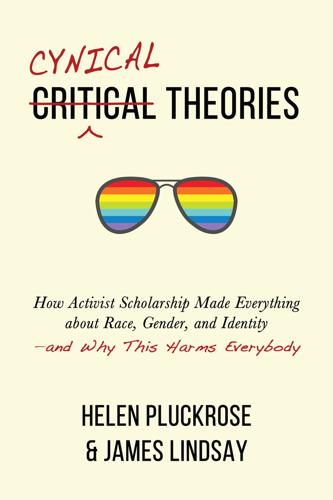
Cynical Theories: How Activist Scholarship Made Everything About Race, Gender, and Identity―and Why This Harms Everybody
by
Helen Pluckrose
and
James A. Lindsay
Published 14 Jul 2020
Key texts included Simone de Beauvoir’s The Second Sex (1949),6 a groundbreaking book that argued that women are constructed by cultural understandings of their inferiority to men, and Betty Friedan’s The Feminine Mystique (1963),7 which criticized the idea that women were fulfilled by domesticity and motherhood. Kate Millet’s Sexual Politics (1970)8 provided a close reading of negative representations of women in literary texts by men, and Germaine Greer’s The Female Eunuch (1970)9 argued that women were sexually repressed and alienated from their own bodies and unaware of how much men hated them. These texts all fall within radical feminism, argue that womanhood is culturally constructed and imposed by men (in a top-down power dynamic), and advocate the revolutionary overthrow of patriarchy.
…
The rejection of the linear wave model is especially true of many branches of black and intersectional feminist thought. 5.Paraphrased from Judith Lorber, “Shifting Paradigms and Challenging Categories,” Social Problems 53, no. 4 (2006): 448. 6.Simone de Beauvoir, The Second Sex, trans. H. M. Parshley (New York: Vintage Books, 1974). 7.Betty Friedan, The Feminine Mystique (New York: W. W. Norton & Company, 2013). 8.Kate Millett, Catharine A. MacKinnon, and Rebecca Mead, Sexual Politics (New York: Columbia University Press, 2016). 9.Germaine Greer, The Female Eunuch (London: Fourth Estate, 2012). 10.Lorber writes, “On the hegemony of dominant men, as an adaptation of Gramsci’s (1971) idea of dominant elites and Marxist class consciousness, it was easy to view women as a subordinated class in the domestic division of labor” (“Shifting Paradigms,” 448). 11.Ibid., 449. 12.Jane Pilcher and Imelda Whelehan, Key Concepts in Gender Studies (Los Angeles: Sage, 2017), xiii. 13.Pilcher and Whelehan, Key Concepts. 14.Ibid., xiii. 15.In the words of Pilcher and Whelehan, gender studies “have been a key driver of the increased recognition of diversity and difference.
…
“Varieties of Hermeneutical Injustice.” In The Routledge Handbook of Epistemic Injustice, edited by Ian James Kidd, José Medina, and Gaile Pohlhaus, Jr., 41–52. London: Routledge, 2017. Mill, John Stuart. On Liberty and Other Essays. Oxford: Oxford University Press, 1998. Millett, Kate, Catharine A. MacKinnon, and Rebecca Mead. Sexual Politics. New York: Columbia University Press, 2016. Mills, Charles. “Ideology.” In The Routledge Handbook of Epistemic Injustice, edited by Ian James Kidd, José Medina, and Gaile Pohlhaus, Jr., 100–11. London: Routledge, 2017. Mitchell, Allyson. “Sedentary Lifestyle: Fat Queer Craft.” Fat Studies 7, no. 2 (2017): 147–58.

Future Sex
by
Emily Witt
Published 10 Oct 2016
I began to see conspiracies myself. I walked down the sidewalks of the Mission and noted their glittery resemblance to my sparkly powdered blush in its makeup compact. “This sidewalk looks like Super Orgasm,” I would think, Super Orgasm being the name of the particular shade of blush I owned. My makeup reveled in contemporary sexual politics: FOR HIM & HER read the sticker on the back of my paraben-free foundation, as if we were all living lives of spontaneity and adventure instead of conformity and punishment. I ran to Golden Gate Park, where giant birds of prey gazed hungrily upon glossy dachshunds. The cyclists passed in shoals, dressed in Google bicycle jerseys.
…
The circles, letters A through L, are intersected by minutes, like a clock. Most people stay at theme camps, which combine collective infrastructure—kitchen, sun showers, shade, water tanks—with individual dwellings. These range from high-end operations with a full catering service to groups of friends from California and Nevada with common sexual, political, musical, or professional interests camping in tents. The themes could be creative—one camp, Animal Control, was dedicated to trapping and tagging Burning Man attendees in animal costumes. Others served coffee every morning, or played only music by the Grateful Dead. Because we were radically reliant on some people from San Diego to provide us with an RV and had waited until the last minute to plan our attendance, we were not with a camp.
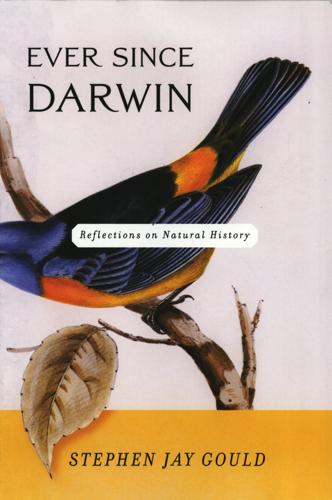
Ever Since Darwin: Reflections in Natural History
by
Stephen Jay Gould
Published 1 Jan 1977
Kubrick’s next film, Clockwork Orange, continues the theme and explores the dilemma inspired by claims of innate human violence. (Shall we accept totalitarian controls for mass deprogramming or remain nasty and vicious within a democracy?) But the most immediate impact will be felt as male privilege girds its loins to battle a growing women’s movement. As Kate Millett remarks in Sexual Politics: “Patriarchy has a tenacious or powerful hold through its successful habit of passing itself off as nature.” 31 | Racist Arguments and IQ LOUIS AGASSIZ, the greatest biologist of mid-nineteenth-century America, argued that God had created blacks and whites as separate species. The defenders of slavery took much comfort from this assertion, for biblical prescriptions of charity and equality did not have to extend across a species boundary.
…
M., 131, 138 Schuchert, Charles, 164–65, 166 Schultz, A. H., 74–75 Science, 199–265 and human nature, 229–65 and society, 199–228 Science, 54, 114, 236, 258, 265 Scopes, John, 141–42, 146 Sedgwick, A., 149 Selander, R. K., 236 Sepkoski, J. J., 128, 131 Serres, Etienne, 218 Sex, 116 Sexual Politics (Millett), 242 Shockley, William, 238 Sibling species, 53 Siever, Raymond, 193 Simberloff, D. S., 131, 138 Simpson, George Gaylord, 43, 44, 208 Size and shape, 169–98 geometry of space, 171 human intelligence, 179–85 of medieval churches, 176–78 planetary, 192–98 vertebrate brain, 186–91 Smith, Adam, 12, 100 Smith, G.

Only Americans Burn in Hell
by
Jarett Kobek
Published 10 Apr 2019
Jonathan Lethem “Jarett Kobek’s books are an attempt to explode what the novel could still be, as radical as Samuel Richardson or Laurence Sterne’s attempts to define what it was in the first place. Only Americans Burn in Hell is a fantasy work about mythic Amazons time-travelling to modern America of the type currently clogging multiplexes—but one infected by anxieties about sexual politics, the ethics of the digital world and the horrorshow of the Trump administration. Kobek makes you laugh and think at the same time, engaging both the head and the gut.” Stewart Lee “Only Americans Burn in Hell is a smoking hot and hilarious dissection of why the world is in such a mess right now.
…
It’d been there for a very long time, holding back all of women’s awful experiences with men from the dawn of civilization. And now it was open. There was an organic outpouring of stories. These appeared on social media under the hashtag of #MeToo. Women wrote about being sexually harassed, about being raped, about being treated like idiots. It amounted to a profound discomfort with the way that sexual politics worked in the post-industrial civilized world. And let’s be clear. Whatever the merit of any individual statement, the general intent of #MeToo was undeniable. It was people saying that a society built around the whims of men is a recipe for a disaster. And if you disagree with that, go and look out the fucking window.
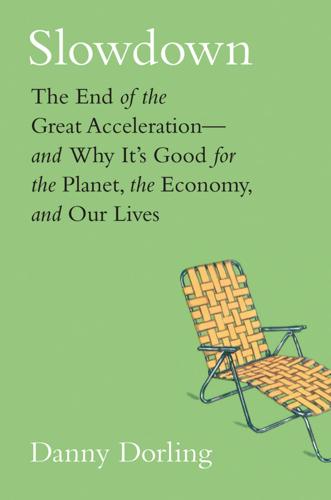
Slowdown: The End of the Great Acceleration―and Why It’s Good for the Planet, the Economy, and Our Lives
by
Danny Dorling
and
Kirsten McClure
Published 18 May 2020
It is therefore not surprising to find that prior educational attainment (as well as parents’ socioeconomic position or education) is as good a predictor of future educational achievement for individuals as all their genetic data (summarized through polygenic scores).26 For example, looking at much the same data, we also find that whether a child enjoys being at school is at least as important as all these factors in terms of whether she or he does comparatively well at school.27 To most people, this finding would be obvious, but not to those who believe that the determinants of educational outcome are primarily genetic. Coincidentally, those same people also often believe that their own “success” can be attributed to their own superior genes, not to their privilege. SPEED, SEXUAL POLITICS, AND THE ZEITGEIST Just over a decade ago it was not unusual to read books with titles such as High-Speed Society: Social Acceleration, Power, and Modernity. This particular book began by presenting its first evidence of acceleration (on page 2) from film and TV, suggesting, “The shot lengths in movies, advertisements, and even documentaries have [decreased] by a factor of at least 50.”28 More recent analysis of those data concluded that average shot lengths in films had reduced from twelve seconds in 1930 to about two and a half seconds in 2010, but older films tended to pack more characters into a shot and thus filmmakers had to allow more time for viewers to register the scene.
…
Only in a limited sense are we traveling more: over further distances, yes, but not traveling for a higher proportion of our lives—so that although we do travel further and faster today, it’s not ever faster and ever further. When a few things do fundamentally change, that change is often not gradual but comes in a sudden generational leap. Consider sexual politics. If we are really speeding up, why aren’t we having more and more sexual partners, more marriages, more affairs?31 Let’s look at England and Wales since the Second World War. In 1947, about 400,000 couples a year were getting married. That total fell a little in subsequent years as those who had been forced to delay marriage due to the war got to tie the knot.
…
See also books public debt, 59–62, 62 Putin, Vladimir, 312 quality of life, 243–44 Quinkey, 86 “Race of Our Lives Revisited” (Grantham), 237 Rand, Ayn, 262–63, 358n1 Randers, Jørgen, 140 rate of change, 4–5, 33, 76, 333, 334 Reagan, Ronald, 60, 192, 194, 278 recessions and depressions, 53–55, 54, 60–61, 93–94, 99, 101, 101, 104, 130, 179, 255; Great Depression, 57; Great Repression, 46 redistribution, 294–95 rental housing, 49–50, 53 Republican Party, 277, 278, 279 revolution 122, 143, 198, 263 Roosevelt, Franklin D., 277, 278, 279 Rousseau, Jean-Jacques, 185 ROXY indexes, 326–29, 328 Rudd, Kevin, 175 Russia: Moscow population, 323; population, 172, 173, 174; status of, 280 Sanyal, Sanjeev, 141 Schengen Agreement/Area, 161 Scheuerman, William, 291 Schiller, Robert J., 253–54 science fiction, 207, 214 Scott, James C., 189 sea levels, 10, 130, 137 Second World War. See World War II selfishness, 262–63 sewage treatment, 269 sexual politics, 272 Shapin, Steven, 318–19 Shimanto, Japan, 22–23 shot lengths in movies, 272 Sinclair C5, 78 slavery, 8–9, 145, 162 slowdown: adaptation to, 9; as alarming, 8–10, 235–36, 246, 316–19; alternative theories, 288–89; effects of, 11–14; evidence of (overview), 324–26; explanations of why, 296–98; as good thing, 1–4, 10–11, 180–82, 291–92, 323, 330–31; government and, 287–88; human agency and human ignorance and, 306–7; Japan as leader of, 326–30; and old ideologies, 276, 319; predicting the future, 317–19; speeding train analogy, 2, 15, 198, 199, 236; and stability, 7–8, 10, 192, 194–99; as temporary, 324; use of term, 1 Smyrnioudis, Ilias, 16 social housing, 51, 56 socialism, 276 Song Jung-a, 1 sound-recording technology, 288–89, 290–91 South America, 177–79, 178 space travel, 3, 149, 288, 363n2 Spain: automobile production, 118; support for emigration controls in, 161 speculation, 254–56 speed, 272–76 Spencer, Roy, 134 sports and entertainment, 322–23 stability, 18–19, 280; and capitalism, 231, 284; and Generation Z, 214–15 standards of living, 242–47, 245 Stand on Zanzibar (Brunner), 314, 324 steam engines, 289–90 Steele, Tanya, 133 Stern, Nicholas, 125 Stevenson screens (Thomas Stevenson), 124 stock market, 255–61 storytelling, 64–65 Stram Kurs party, 277 student debt, 39–43, 41, 45, 52, 96 student protests (1960s), 25–26 suicide, 243–44 sustainability, 237, 265–66, 291, 298; and capitalism, 231 Takase, Naofumi, 23 technological progress: artificial intelligence (AI), 85, 87, 96–97, 301–2; assumptions about continuation of, 1–2, 32, 67, 87, 96, 182; diminishing returns of, 182, 267, 269, 288–89; household appliances, 267, 269; rise and fall of new tech nologies, 77–80, 98; stabilization and slowdown, 38, 85–88, 288–91, 295–96.
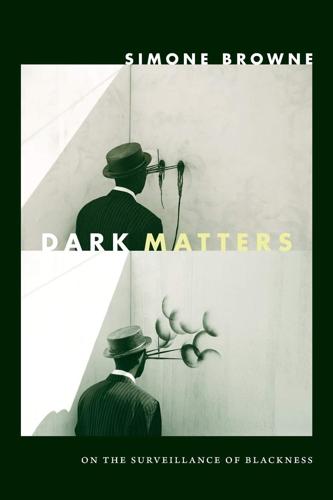
Dark Matters: On the Surveillance of Blackness
by
Simone Browne
Published 1 Oct 2015
“New Logan Searches Blasted: TSA Tests Frisky Frisking Policy,” Boston Herald, August 21, 2010, http://bostonherald.com/business/general/view/20100821new_logan_searches_blasted_tsa_tests_frisky_frisking_policy. 62. Robert J. Hawkins, “Oceanside Man Ejected from Airport for Refusing Security Check,” U-T San Diego, November 14, 2010, http://www.utsandiego.com/news/2010/nov/14/tsa-ejects-oceanside-man-airport-refusing-security/. 63. Collins, Black Sexual Politics, 123. Collins names the mammy image as a representational practice that, along with other controlling images (Jezebel, the black matriarch, the welfare queen), worked to justify black women’s subordination. The “bitch” is, according to Collins, a “reworking of the image of the mule of chattel slavery.
…
New York: Random House, 1967. Cole, Simon. “Brandon Mayfield, Suspect.” In Suspect, edited by John Knechtel, 170–185. Cambridge, MA: MIT Press, 2006. Collins, Patricia Hill. Black Feminist Thought: Knowledge, Consciousness and the Politics of Empowerment, 2nd ed. London: Routledge, 2000. _____. Black Sexual Politics: African Americans, Gender and the New Racism. New York and London: Routledge, 2004. _____. Fighting Words: Black Women and the Search for Justice. Minneapolis: University of Minnesota Press, 1998. Cooper, Afua. The Hanging of Angelique: The Untold Story of Canadian Slavery and the Burning of Old Montréal.

Discovering the Inner Mother: A Guide to Healing the Mother Wound and Claiming Your Personal Power
by
Bethany Webster
Published 5 Jan 2021
First appeared in Sojourner, August 1979. Used by permission of The Wallace Literary Agency, a division of Robin Straus Agency, Inc. Pages 157–158 : From Sieff, Daniela F. (2009) “Confronting Death Mother—An interview with Marion Woodman.” Spring Journal 81, pp. 177–199. Used with permission. Page 177-199: From Sexual Politics by Kate Millett. Copyright © 2016 Columbia University Press. Reprinted with permission from the publisher. Page 213: From “Homecoming” by Linda Reuther in Her Words: An Anthology of Poetry About The Great Goddess, edited by Burleigh Mutén. Copyright © 1999 Shambala. Acknowledgments I’d like to thank the brave women who came before me, writers whose work has come from a commitment to telling the truth about their lives as women: Adrienne Rich, Audre Lorde, Marge Piercy, Andrea Dworkin, Kate Millett, bell hooks, Phyllis Chesler.
…
New York: Oxford University Press, 1986. Martinez, Mario E. The Mindbody Code: How to Change the Beliefs That Limit Your Health, Longevity, and Success. Boulder, CO: Sounds True, 2016. Maté, Gabor. In the Realm of Hungry Ghosts: Close Encounters with Addiction. Toronto: Vintage Canada, 2018. Millett, Kate. Sexual Politics. New York: Columbia University Press, 2016. Moffitt, Phillip. “Healing Your Mother (or Father) Wound.” 2011. Retrieved from http://dharmawisdom.org/teachings/articles/healing-your-mother-or-father-wound. Oliver, Mary. Dream Work. Boston: Atlantic Monthly Press, 1986. Penny, L. “Most Women You Know Are Angry—and That’s All Right.”

Our Posthuman Future: Consequences of the Biotechnology Revolution
by
Francis Fukuyama
Published 1 Jan 2002
What is noteworthy about this story, however, is that Money could assert for almost fifteen years in scientific papers that he had succeeded in changing Brenda’s sexual identity to that of a girl, when exactly the opposite was the case. Money was widely celebrated for his research. His fraudulent results were hailed by feminist Kate Millet in her book Sexual Politics, by Time magazine, and by The New York Times and were incorporated into numerous textbooks, including one in which they were cited as proving that “children can easily be raised as a member of the opposite sex” and that what few inborn sex differences might exist in humans “are not clear-cut and can be overridden by cultural learning.”19 David Reimer’s case stands as a useful warning about the uses to which biotechnology may be put in the future.
…
See men/women differences Manhattan Project manic depression MAO genes Maoist China marijuana market economy failure in Marx, Karl Masters, Roger materialism mathematical ability mating, assortative McShea, Robert Mead, Margaret, Coming of Age in Samoa mean median median age Medicaid medical experimentation medicalization of behavior medical profession dedicated to prolonging life purpose of medical technology devil’s bargains offered by Medicines Control Agency (UK) memory, gene for men and women. See men/women differences young. See young males mental illness, Freudian theory of men/women differences attitude toward military force brain development Mertz, Janet messenger RNA methamphetamine (speed) Middle East military technology Millet, Kate, Sexual Politics minds, male vs. female Minnesota twin study (1990) minority communities, prescribing of psychotropic drugs for miscarriages Money John Monsanto Moore, G. E. moral behavior Kant’s view of moral choice as source of human dignity moral rules freedom to accept vs. freedom to create rational Moravec, Hans Morozov, Pavel Morton, Samuel George MSN murder Murray, Charles, and Richard Herrnstein, The Bell Curve music Muslim communities Mycogen Seeds nanotechnology National Association for the Advancement of Colored People (NAACP) National Bioethics Advisory Commission National Center for Biotechnology Information National Center for Human Genome Research National Commission for the Protection of Subjects of Biomedical and Behavioral Research National Educational Association (NEA) National Front National Institute of Mental Health, Violence Initiative National Institutes of Health (NIH) National Longitudinal Survey of Youth National Research Act nations, demand for recognition by Native Americans blood types among naturalistic fallacy natural rights human nature and and the U.S. constitution See also rights natural science, view of human nature natural selection nature-nurture controversy Nazi doctors Nazi regime negative externalities neuron firings neuropharmacology future advances in regulation of neurosciences, advances in neurotransmitters Newtonian mechanics New York City, crime rates nicotine Nietzsche, Friedrich nonlinear systems norepinephrine systems North America North Korea North-South regional conflict Norway noumena, things-in-themselves Novartis (formerly Ciba-Geigy) Novartis Seeds nuclear technology control of regulation of nuclear weapons control of Nuremberg Code nursing home “scenario” old age, two periods of (Category I and II) old people.
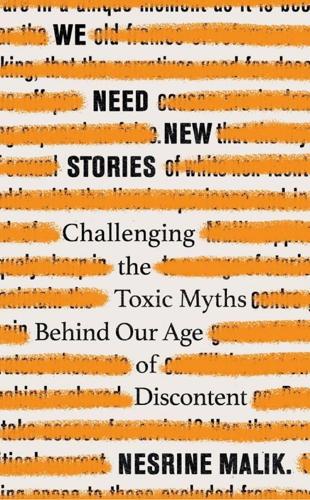
We Need New Stories: Challenging the Toxic Myths Behind Our Age of Discontent
by
Nesrine Malik
Published 4 Sep 2019
If one is ‘an’ authority, they are then ‘the’ authority, moving from economic history to empire, to Islamism, to sexual politics and consent. On the latter he has this to say: ‘I wonder: do we risk sliding into a kind of secular sharia, in which all men are presumed to be sexual predators and only severe punishments can prevent routine rape? Will one-to-one work meetings between a male and a female co-worker soon be a thing of the past? What next? A more general segregation of the sexes? How the Islamists must be enjoying all this.’ Gender equality It is hard to believe, but Ferguson’s whiplash-inducing observation on sexual politics, one that goes from wondering where it’s all going, to imagining a world where Islamists are enjoying seeing gender segregation in the West in four sentences, is among the least outrageous written on the subject of consent.

Spectrum Women: Walking to the Beat of Autism
by
Barb Cook
and
Samantha Craft
Published 20 Aug 2018
I knew I didn’t want to grow up to be the kind of woman with which I was being presented, unless by some chance I was going to be Alexandra Bastedo in The Champions, all elegant Chanel suits, skilled in karate and telepathic communication, or a female Spock, intellectually rigorous, self-contained but essentially “human.” But despite all the years I pleaded with Scotty to “please, please, come back and beam me up,” I never did grow pointy ears or transport to Vulcan. Ideas of gender identity were not discussed in my world until I was a young adult and had left home. Even then, while I was involved in sexual politics, thus having the opportunity and support to consider my sexual and gender identities, I never really doubted my cis identity as a heterosexual female. But I did, at various times in my early adulthood, truly wonder if I had been born into the wrong physiologically sexed body. I have wondered, if I’d had access to the kinds of conversations taking place now around gender identity, whether I might have made some different life choices.
…
After graduation I was the full-time waged president of GSA’s students’ union for two years. My absorption in politics was, well, it was my “intense interest.” I worked hard. I was an “arty, Trotskyite, feminist weirdo” (apparently), elected to the NUS Scotland Executive Committee, visiting Greenham Common and helping to organize a unique Sexual Politics conference in 1983 in Edinburgh. I had to pull away to some extent, tired of being angry all the time, and overloaded. But those times—the years of philosophical disaffection and those of engaged feminism—have informed everything I’ve done since and provided the underpinning for why I chose, years later, to study the lived experiences of Asperger girls for my PhD (Stewart, 2011, 2012).
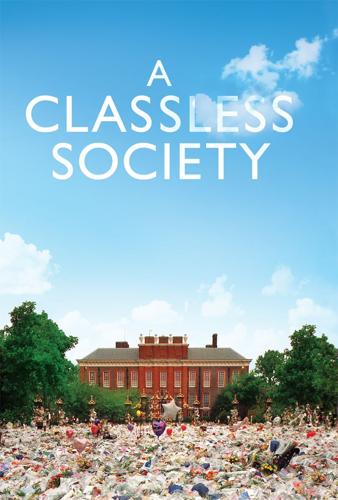
A Classless Society: Britain in the 1990s
by
Alwyn W. Turner
Published 4 Sep 2013
It was capable of occasional, sporadic eruption into the mainstream of music, as with groups like the Jesus and Mary Chain and the Smiths in the mid-1980s or the Madchester bands at the end of the decade; it could even produce a major commercial success like Viz comic; and it channelled a great deal of energy into creating a new incarnation of stand-up comedy. But mostly this end of youth culture was characterised by its defiant refusal to seek a mass market. It was also known for its right-on attitudes, and in particular its embrace of sexual politics. This was, remarked the comedy writer John O’Farrell, ‘the world of the new puritans’, where the campaign to drive sexism out of society seemed sometimes to shade into a suspicion of heterosexuality and of sex itself. David Baddiel’s account of the discussion about Henry: Portrait of a Serial Killer was in part a riposte to this dour current, and was certainly seen as such in some quarters.
…
Loaded’s core market, however, was younger: ‘Most of our readers are in their early twenties,’ admitted Brown in 1994 and, though he insisted that this wasn’t relevant, arguing that the magazine was ‘about a devil-may-care attitude, not demographics’, the disparity in age and outlook became ever more apparent as the decade wore on. In the hands of a new generation, untouched by the gender wars and sexual politics of the 1980s, the subtle nuances of irony melted away. With that fig-leaf gone, there seemed to be less newness and more laddishness on display, so that the new FHM was separated from the old Penthouse only by an attitude of irreverence and a thong. That thong, however, was a hugely important dividing line, on the other side of which lay pornography.
…
It lent a new middle-class legitimacy to a lifestyle that would once have been considered slovenly and irresponsible, while adding a degree of tolerance; even if there lurked a suspicion that this was all a bit patronising, that the adoption of the term ‘lad’ implied that working-class men weren’t really adults, but merely adolescent minds trapped in grown-up bodies. Within a few years the word ‘chav’ would gain currency, to describe those who behaved like lads without the income or education to justify their conduct. Meanwhile, there was less talk by the middle of the decade of sexual politics, though the changes wrought by feminism became ever more entrenched. In 1997 the number of women in the national workforce exceeded that of men for the first time in the country’s history, a revolutionary moment that largely passed without notice. This was a relatively recent trend and one that had a profound impact on the male half of the population; in the 1960s there were 15 million men in employment in Britain, thirty years later there were just 11 million.

Pocket Stockholm Travel Guide
by
Lonely Planet
The first instalment in Larsson’s series was remade in English by director David Fincher, with Daniel Craig as journalist Mikael Blomkvist, mostly on location in Sweden. TV The Bridge, an excellent Danish–Swedish coproduction that has also had an American remake, is a bit grisly. But the unconventional police procedural reveals subtleties of Swedish life that are often overlooked: things like inter-Scandinavian tensions, sexual politics, treatment of minorities and immigrants, and not least, a particularly Scandinavian visual style. Entertainment 3FaschingJAZZ MAP GOOGLE MAP Music club Fasching is the pick of Stockholm’s jazz clubs, with live music most nights. DJs often take over with Afrobeat, Latin, neo-soul or R&B on Friday night and retro-soul, disco and rare grooves on Saturday. (%08-53 48 29 60; www.fasching.se; Kungsgatan 63; h6pm-1am Mon-Thu, to 4am Fri & Sat, 5pm-1am Sun; dT-Centralen) 3OperanOPERA MAP GOOGLE MAP The Royal Opera is the place to go for thunderous tenors, sparkling sopranos and classical ballet.
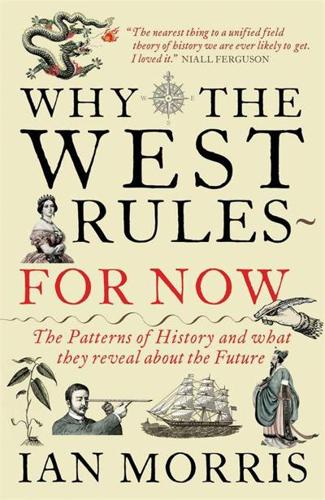
Why the West Rules--For Now: The Patterns of History, and What They Reveal About the Future
by
Ian Morris
Published 11 Oct 2010
The changes freed women for work outside the home in an economy rapidly shifting from manufacturing toward services, shedding blue-collar labor but crying out for pink-collar workers. In the richest countries the proportion of women in paid jobs and higher education rose steadily after 1960, and, like every era before it, this age got the thought it needed. Books such as The Feminine Mystique and Sexual Politics urged middle-class American women to seek fulfillment outside their traditional roles. In 1968 a hundred protestors broke up the Miss America pageant in Atlantic City. By the 1990s men were actually sharing housework and parenting (even if their wives and girlfriends generally still did more).
…
Mutual Assured Destruction: Krepon 2008. Decolonization: Abernethy 2000, Brendon 2008, P. Clarke 2008, Darwin 2009. European Union: Gillingham 1991, 2003. Material abundance: de Grazia 2005, Fogel 2004, Grigg 1992, Sandbrook 2005. Rising life expectancy: Riley 2001. Feminine Mystique: Friedan 1963. Sexual Politics: Millett 1970. American suburbs: Hayden 2002. 1980s economic revival: Yergin and Stanislaw 2002. The Oxford History of the United States series (D. Kennedy 1999, Patterson 1997, 2005) is a fine survey of twentieth-century American history. America’s geographical advantages: Cumings 2009. Computers and the Western core in the 1970s–80s: Castells 1996–98, Saxenian 1994, and the entertaining account of Wozniak and Smith 2007.
…
American Sociological Review 22 (1957), pp. 635–59. Meskill, John, ed. Ch’oe Pu’s Diary: A Record of Drifting Across the Sea. Tucson: University of Arizona Press, 1965. Michalowski, Piotr. The Lamentation Over the Destruction of Sumer and Ur. Winona Lake, IN: Eisenbrauns, 1989. Millett, Kate. Sexual Politics. New York: Abacus, 1970. Mills, J. V. G., ed. Ma Huan, “Overall Survey of the Ocean’s Shores” [1433]. Cambridge, UK: Cambridge University Press, 1970. Mills, J. V. G., and Roderich Ptak, eds. Hsing-Ch’a Sheng-Lan, The Overall Survey of the Star Raft by Fei Hsin. Wiesbaden: Harrassowitz Verlag, 1996.

Kill All Normies: Online Culture Wars From 4Chan and Tumblr to Trump and the Alt-Right
by
Angela Nagle
Published 6 Jun 2017
It explores ‘female hypergamy (mating up), narcissism, infidelity, deceptiveness, and masochism.’ It also argues that ‘the breakdown of monogamy results in promiscuity for the few, loneliness for the majority.’ On this last point, I think he’s getting to the central issue driving this kind of reactionary sexual politics, perhaps even the central personal motivation behind the entire turn to the far right among young men. The sexual revolution that started the decline of lifelong marriage has produced great freedom from the shackles of loveless marriage and selfless duty to the family for both men and women. But this ever-extended adolescence has also brought with it the rise of adult childlessness and a steep sexual hierarchy.

The Road to Unfreedom: Russia, Europe, America
by
Timothy Snyder
Published 2 Apr 2018
In the newspaper Kommersant, Lavrov repeated Ilyin’s idea that “society is a living organism” that had to be protected from Europe’s hedonistic “refusal of traditional values.” Lavrov presented the Ukrainians who were struggling, and by that point dying, for European ideas of law as the prey of European sexual politics. Even as Russian troops were mobilizing to invade Ukraine and overturn its government, Lavrov presented Russia as the victim. The true aggressors, according to Lavrov, were the international gay lobbyists who “propagated with missionary insistence both inside their own countries and in relations with neighbors.”
…
RT, July 8, 2013; see also Bryan MacDonald, “Could UKIP’s rise herald a new chapter in Russian-British relations,” RT, Nov. 25, 2014. Le Pen: Alina Polyakova, Marlene Laruelle, Stefan Mesiter, and Neil Barnett, The Kremlin’s Trojan Horses (Washington, D.C.: Atlantic Council, 2016); see also the discussion below on loans and gay marriage. In 2013, a preoccupation Le Pen and sexual politics in Russia: Polyakova et al., Kremlin’s Trojan Horses, 10. Le Pen on homophilia: Aleksandr Terent’ev-Ml., interview with Marine Le Pen, “Frantsiia davno uzhe ne svobodnaia strana,” Odnako, Aug. 6, 2013. Chauprade: Marine Turchi, “Les réseaux russes de Marine Le Pen,” Mediapart, Feb. 19, 2014; Sputnik France, Oct. 16, 2013; Aymeric Chauprade, speech to Russian Duma, Realpolitik TV, June 13, 2013.

Sorting Things Out: Classification and Its Consequences
by
Geoffrey C. Bowker
and
Susan Leigh Star
Published 25 Aug 2000
Ideally, they would become topological, but with an ease of management, data entry, and controlled vocabulary preserved. Thus far, this goal has proved elusive. To tell the story as one internal to the history of medicine, consider the problem of tracking AIDS through history. AIDS achieved recognition as a disease in a slow process. Gay and sexual politics, medical profit making, and medical research were embroiled together in both its definition and its control. From the public health side, researchers at the Centers for Disease Control began to notice increased requests for a drug used to treat Kaposi’s sarcoma-a rare condition previously afflicting certain localized or well-defined population groups, such as elderly men of eastern European descent.
…
Discursive Psychology . London: Sage. Egger, Eddeltrud, and Ina Wagner. 1993. “Negotiating Temporal Orders: The Case of Collaborative Time Management in a Surgery Clinic”. In Computer Supported Cooperative Work (CSCW) 1: 255-275. Ehrenreich, Barbara, and Deirdre English. 1973. Complaints and Disorders: the Sexual Politics of Sickness. Old Westbury, NY: The Feminist Press. Eisenstein, Elizabeth L. 1979. The Printing Press as an Agent of Change: Communications and Cultural Transformations in Early Modern Europe. Cambridge: Cam bridge University Press. Engestrom, Yrjo. 1990a. “Organizational Forgetting: an Activity-Theoretical Perspective”.
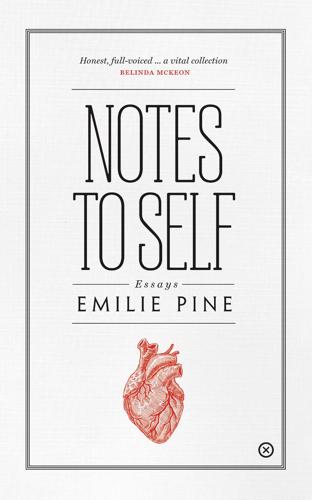
Notes to Self
by
Emilie Pine
Published 14 Apr 2018
The dispensing nurse smiled and then talked to me about foreplay, and the length of time it takes for women to climax, and she told me that most women can’t achieve orgasm through penetration alone. I endured the consultation, blushing every time she talked about sexual pleasure, but this was life-changing information. Sex, it turns out, is meant to be – it is – fun. It does not shake the whole wide world, or revolutionise anyone else’s sexual politics, but this different attitude to my physical self, only fully discovered in my thirties really, has shaken my world and, often, my body. I am very much here. IF IT WAS HARD to find the beginning of this story, then it’s also hard to decide on its end, and harder still to decide if there’s any helpful lesson buried in all this experience.

How to Be Right: In a World Gone Wrong
by
James O'Brien
Published 2 Nov 2018
In the aftermath of this scandal, for example, I learned that Section 40 of the Equality Act 2010, which required employers to safeguard employees against harassment from clients and customers, had been repealed in 2013 as part of the Conservative Party’s tabloid-friendly programme of ‘cutting red tape’. Perhaps the biggest catalyst for social change in recent years is the #MeToo movement which saw scores of Hollywood actresses come forward to describe the sexual abuse they had allegedly suffered at the hands of an incredibly powerful producer. It seemed to signal a sea change in sexual politics that will hopefully resonate for generations to come and prompted women a million miles away from Hollywood to speak out about the climate of casual abuse in which they had always lived. I was staggered to learn from callers, and from women I know and love in my personal life, how ‘normal’ it was for a boss to squeeze their breast during a drunken staff photo or how often they’ve had to fight off colleagues at a Christmas party.
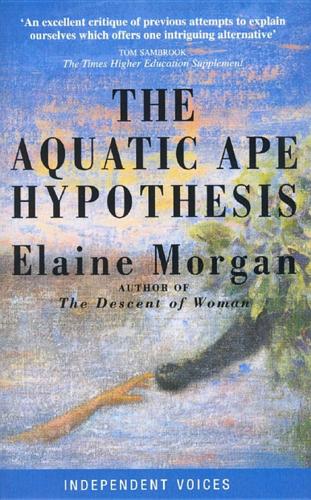
The Aquatic Ape Hypothesis
by
Elaine Morgan
Published 3 Jan 2011
He writes: ‘If the human menstrual cycle was genuinely linked with the moon it would be rather surprising, for such a correspondence is not normal, either for primates or for mammals in general’.12 He interprets it in terms of his hypothesis of a sexual strategy: ‘If coastal females were beginning to synchronise with each other for their own sexual-political reasons, then any external cues with an appropriate periodicity would automatically have acquired special significance’. That could have stabilised a roughly four-weekly cycle into a more precisely lunar one, and that could have been further reinforced in the savannah period and subsequently by the characteristically lunar periodicity of rituals connected with human hunting—a suggestion documented by accounts of practices and rites in many societies in different parts of the world.

Sorting Things Out: Classification and Its Consequences (Inside Technology)
by
Geoffrey C. Bowker
Published 24 Aug 2000
Ideally, they would become topological, but with an ease of management, data entry, and controlled vocabulary preserved. Thus far, this goal has proved elusive. To tell the story as one internal to the history of medicine, consider the problem of tracking AIDS through history. AIDS achieved recog nition as a disease in a slow process. Gay and sexual politics, medical profit making, and medical research were embroiled together in both its definition and its control. From the public health side, researchers at the Centers for Disease Control began to notice increased requests for a drug used to treat Kaposi 's sarcoma-a rare condition previously affiicting certain localized or well-defined population groups, such as elderly men of eastern European descent.
…
London : Sage. Egger, Eddeltrud, and Ina Wagner. 1 993. " Negotiating Temporal Orders : The Case of Collaborative Time Management in a Surgery Clinic . " In Computer Supported Cooperative Work (CSCW) 1 : 255-275. Ehrenreich, Barbara, and Deirdre English. 1 97 3 . Complaints and Disorders: the Sexual Politics of Sickness. Old Westbury, NY: The Feminist Press. Eisenstein, Elizabeth L. 1 979. The Printing Press as an Agent of Change: Commu nications and Cultural Transformations in Early Modern Europe. Cambridge: Cam bridge University Press. Engestrom, Yrjo. 1 990a. " Organizational Forgetting: an Activity-Theoretical Perspective. " In Yrjo Engestrom, Learning, Working and Imagining: Twelve 346 References Studies in Activity Theory .
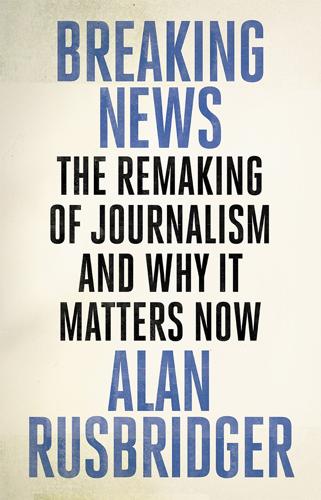
Breaking News: The Remaking of Journalism and Why It Matters Now
by
Alan Rusbridger
Published 14 Oct 2018
She acknowledged after a few months that she was commissioning far too much – 2,800 pieces and 72,000 comments in three months. But, within a year, there had been a few thousand voices on the Guardian site who would never have been heard before. It was a lively, buzzing, disputatious, sometimes anarchic, sometimes worrying, often uplifting space. The site covered sexual politics, gender, identity, socialism, the Middle East – perhaps too exhaustively – food security, civil liberties (a microsite edited by Henry Porter)10 and much more. Some of the below-the-line responses were middling-to-ugly. Others were marvellous. At one point Madeleine Bunting started a thread about the Enlightenment – something that preoccupied her as she thought about the place of faith in society.
…
Much of it had been driven by the opportunities to attract advertising; but some of it had simply been an editorial wish to reflect worlds beyond the worthy, very masculine core of what a broadsheet newspaper had been for much of the nineteenth and twentieth centuries. So – bolted on to news, politics, international affairs and finance – newspapers had started writing about fashion, clothes, food, drink, travel, sex, sexual politics, gender, children, families, emotions, leisure, love, cars, gardening, property, adventure, exercise, mental well-being, identity, time off and much more. All those cost money to cover, as well. You could argue they weren’t ‘core’ to what a newspaper was, but were now an expected part of a richer mix.

Why Women Have Better Sex Under Socialism: And Other Arguments for Economic Independence
by
Kristen R. Ghodsee
Published 20 Nov 2018
Susan Gal and Gail Kligman, The Politics of Gender After Socialism (Princeton, NJ: Princeton University Press, 2000). 10. Janine R. Wedel, Collision and Collusion: The Strange Case of Western Aid to Eastern Europe, 1989–1998 (New York: St. Martin’s, 1998); quote from Dagmar Herzog. “Post Coitum Triste Est…? Sexual Politics and Culture in Postunification Germany,” German Politics and Society 94, no. 28 (2010): 111–140; Soviet quote from Doug Henwood, personal email communication with the author, Aug. 18, 2017. 11. Kristen Ghodsee, “Fires,” in Red Hangover: Legacies of Twentieth-Century Communism (Durham, NC: Duke University Press, 2017). 12.

Everything Bad Is Good for You: How Popular Culture Is Making Us Smarter
by
Steven Johnson
Published 5 Apr 2006
That's why it's important to point out that even the worst of today's television-a show like The Apprentice, say doesn't look so bad when measu red against the dregs of television past. If you assume there will always be a market for pulp, at least the pulp on The Apprentice has some con nection to people's real lives: their interoffice rivalries, their battles with the shifting ethics and sexual politics of the corporate world. It's not the most profound subj ect matter in the history of entertainment, but compared with the pab ulum of past megahi ts--compared with Mork & Mindy or Who 's the Boss?-it's pure gold. But in making this comparative argument, some might say I have set the bar too low.

Marx at the Arcade: Consoles, Controllers, and Class Struggle
by
Jamie Woodcock
Published 17 Jun 2019
Dyer-Witheford and de Peuter point out that by the mid-1990s, “80 percent of players were boys and men,” which they argue was a result of several factors: The military origins of simulations, the monasticism of hacker culture, the bad-boy arcade experience, testosterone niche marketing, developers’ hiring of experienced (hence male) players, game capital’s risk-averse adherence to proven shooting, sports, fighting, and racing formulae—all combined to form a self-replicating culture whose sexual politics were coded into every Game Boy handheld, every Duke Nukem double-entendre, and every booth babe at industry conferences, where women appeared only as imperiled princesses and imperiling vixens, a male head-start program, building and consolidating the gender stratification within immaterial labor.71 This shaped the kinds of games that were designed, funded, and made, which in turn affected player demographics, which, again, determined what is considered a popular game.
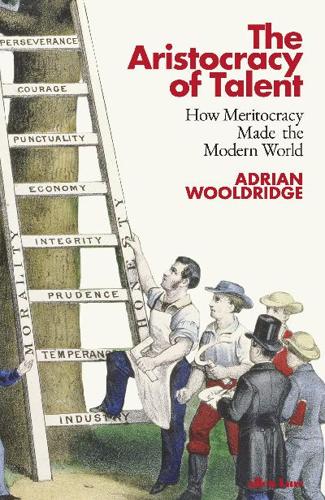
The Aristocracy of Talent: How Meritocracy Made the Modern World
by
Adrian Wooldridge
Published 2 Jun 2021
Radicals increasingly questioned the logic of the pure meritocratic calculus as applied to people who had been subjected to slavery and discrimination and argued that collective wrongs, imposed on people because of their sex, race or sexuality, required collective solutions. Radical literature emphasized the importance both of group identity and group solutions: second-wave feminist literature such as Robin Morgan’s Sisterhood is Powerful, Germaine Greer’s The Female Eunuch and Kate Millet’s Sexual Politics (all 1970); black power literature such as James Baldwin’s The Fire Next Time (1963) and Stokely Carmichael and Charles V. Hamilton’s Black Power: The Politics of Liberation in America (1967); and gay rights literature such as Gore Vidal’s novels and Paul Goodman’s The Politics of Being Queer (1969).
…
L. 253 Mendel, Gregor, and inheritance 219 Mendelssohn, Felix 92 Mendelssohn, Moses 96 Merchant Taylors livery company, schools 104 merit honours for 109 and intelligence 205 and wealth 17 merito-plutocratic elites condescension by 341–4, 375 contempt for 396 education 307–311 intermarriage 311–12 international loyalties 323 modern 306–28 monopoly of world view 339–40 as parents 312–18 self-segregation 312, 398 selfishness of 392 social conservatism 324 see also political meritocracy meritocracy 1 and American Revolution 177–9 anti-racism and 347 communitarian critique of 294–7 Confucian theory of 76–7 and democracy 226, 323, 383–5 and economic prosperity 367–70 and efficiency 165 and elitism 137 history of 11–18 and inequalities 287, 349 intellectual criticism of 286–92 modern criticisms of 4–10, 333, 374–6 modern dominance of idea 1–4 moral argument for 372–4, 390–93 and need for educational selection 376–9 need for renewal 367–98 and plutocracy 21–2 pressures of 8–9 as protean idea 16 as revolutionary idea 11–12, 19, 56 self-correction of 17 in social theory 137–8 and status 393–6 see also ability; talent meritocratic elites 7, 8, 13 academic 17 businessperson’s 17 political 16 technocratic 16–17 see also merito-plutocratic elites meritocratic revolution (from 1945) 234–55 America 238–42 Britain 234–8 left-wing opposition to 279–305 as moral movement 391 and technocracy 236 unfinished 349, 375 Merkel, Angela 341, 384 Merton, Robert 338 Metcalf, John (Blind Jack of Knaresborough) 145 Mexico 329 Michaels, Ed, Helen Handfield-Jones, and Beth Axelrod, The War for Talent 364 middle classes and benefit from selective education 282–3 and British intellectual aristocracy 151–62, 267–9 and educational difference 293, 294 emulation of aristocracy 230–31 and rise of talent 142–3 migration immigrants in Britain 337, 343 to meritocratic countries 373–4 Miliband, David 320 Mill, James 54 Mill, John Stuart 16, 54 on education 164 on extension of franchise 164–5, 351 and Plato 68 The Subjection of Women 264–5 and women’s equality 20–21, 264–6, 267 Millett, Kate, Sexual Politics 298 Mills, C. Wright 240, 296 The Power Elite 273 Milner, Lord 69 Milton, John 144, 145 misery memoirs, of meritocratic elites 8 modernization France 242–3 Japan 85 Jews and 88 monarchs and heirs 42–3 infertility 42 and male heirs 40–41 minors as 42 and old age 43 patronage 40, 48–50, 54 women as 43 monarchy and dynastic principle 35–46, 133 European 133 and personal power 38–40 and property 38 royal courts 40, 48–9, 100, 148 monogamy 36, 44 Montagu, Ralph Douglas-Scott-, 3rd Baron of Beaulieu31 Montagu, Sir Edward, Lord 55 Montespan, Madame de 50 Moore, Dudley 236 morality and meritocracy 372–4, 390–93 and talent 16 Morant, Sir Robert 165–6 More, Hannah 12–13 More, Thomas, Utopia 67 Morgan, Robin, Sisterhood is Powerful 298 Morris, William 295 Morrison, Herbert 173, 340 Morton, Samuel 207 Moscow School of Mathematics and Navigation 128 Moynihan, Daniel Patrick 386 multinational companies 321–2 music, and meritocracy 3 Namier, Lewis 45 England in the Age of the American Revolution 51 Napoleon Bonaparte 20, 126 and dynasty 132–3 and Légion d’honneur 132 as political genius 142 reforming vision 131–3 Napoleon III, of France 134 NASA (National Aeronautics and Space Administration) 241 National Defense Education Act (1958 US) 241 national identity 393 as populist flashpoint 344–5 National Loyal Women’s League 262–3 National Museum of African-American History 348 National Science Foundation (US) 241 Native Americans 190 nature–nurture debate 120–21, 130–31, 266 in America 284 and IQ testing 280–81, 380–81 neoconservatives America 302 and Iraq War 336 nepotism 47–8 Britain 145 new plutocracy 318–20 reciprocal 319 see also patronage Nesi, Giovanni 107–8 networks, within hierarchies 27–8 Neurather, Walter 287 New Hampshire, constitution 177 New Republic journal 201 New Statesman, on eugenics 213 New York City College 370 elite schools 198, 304, 370, 377 New York Times, The 7, 348 Newcastle, Duke of 51 Newman, John Henry, The Idea of a University (1852) 249–50 Newman, Omorosa Manigault 48 News of the World 338 Newton, Huey 298 Ngiam Tong Dow 354 Nicolson, Harold 236 Nietzsche, Friedrich, on genius 142 Nightingale, Florence 69, 266 Nixon, Richard 240, 335 Noailles, Maréchale de 50 Nobel prizes, Jewish winners 86 nobility, as virtue 107 nonconformism, and social reform 152 Nooyi, Indira 14 Northcote, Sir Stafford 155 Northcote-Trevelyan Report 155–7 and open competition 157–8 resistance to 157 Obama, Barack 2, 3, 331, 344 Ocasio-Cortez, Alexandria 346 O’Connor, Sandra Day 303 office obsolete 51 sale and purchase of 52–3 Old Corruption system 54, 56, 148–9, 391 oligarchy 106 in city-states 105 modern Russian 3 Plato’s 63 Oluo, Ijeoma 347 Opie, Iona and Peter, The Lore and Language of Schoolchildren 296 Oppenheimer family 90 Orwell, George 231, 238 The Lion and the Unicorn 234 Osborne, George 343 Oxford and Cambridge Universities Act (1854, 1856) 159 Oxford University 32 All Souls College 103 Balliol College 312 and elite schools 8, 307 ‘gentleman commoners’ 231 grammar-school students 246 Lady Margaret Hall 388 New College 103 Royal Commission (1850) 158–9 and school examinations 161 women admitted to men’s colleges 275 women at 257 women’s colleges 268 Pace, Richard 34 Packard, Vance, The Pyramid Climbers 253 Padua, University of 33 Paine, Thomas 131, 147, 178 Papacy, and nepotism (for illegitimate children) 47, 101–2 parents and children’s education 4, 21, 312–18 and corruption 315–17 ‘helicopter’ 313–14 ‘tiger’ 314, 356–7 Pareto, Vilfredo 329 Paris and talent-based professions 142 university 33 Parker, John, Labour Marches On (1947) 235 Parliament educational privilege 341 expenses scandal (2010) 338 and patronage 50–51 women in 256–7 Parris, Matthew 342–3 Parsis, as wandering people 97–8 Pascale, Richard, The Art of Japanese Management 254 paternalism 260 Patmore, Coventry 259 patronage 48–55 Britain 145, 231 ended by Northcote-Trevelyan Report 155 and identification of talent 54 modern political 48 in modern university admissions 316–18 obsolete offices 51 and sinecures 51–2 see also nepotism; sale of offices Patton, Francis Landey 194 Paul, St 100 Paul III, Pope 47 Paxman, Jeremy 237–8 Peabody, Endicott 70 Peabody, Francis 13 Pearlstein, Steven 7 Pearson, Karl 165, 211–12, 269 Pellegrino, Bruno 369 Pelopponesian War 64–5 Pendleton Act (1883 US) 200–202 Pennsylvania, University of 197 Penrose, Lionel 281 Pepys, Samuel 52 and patronage 54–5, 56 Percy of Newcastle, Lord 229 Percy Report on Higher Technological Education (1945) 236 Perrot, Georges, ENS 137 Perry, Commodore Matthew 85 Peter the Cruel, heir of king of Castile 44 Peter the Great, tsar of Russia 128–9 Peters, Tom, In Search of Excellence 254 Philip I, of Hesse 111–12 Philip II, king of Spain 42, 45 philosophes, and human nature 118–22 phrenology 207 physiognomy 207 Piobetta, J.
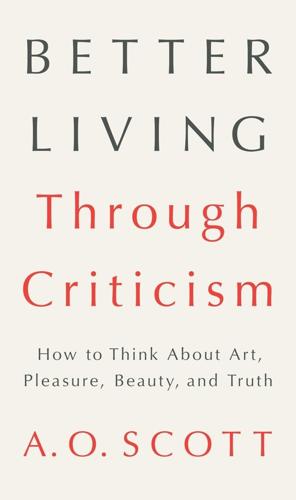
Better Living Through Criticism: How to Think About Art, Pleasure, Beauty, and Truth
by
A. O. Scott
Published 9 Feb 2016
Looking back, I don’t know why I never worked up the nerve or saved up the money to take a bus to the city and see for myself. But my point is that the performance that really interested me was Carr’s: the spectacle of her judgment; the drama of her arguments; the way she interwove her descriptions of various performers and pieces with reflections on sexual politics, AIDS, urban life, and everything that seemed to be going on at once right around me and far beyond my reach. What won me over finally was not the force of her ideas but the charisma of her voice. Q: Do you think she would be happy to hear that? Don’t you think that she was trying to persuade her readers, to engage them on the level of opinions and ideas, rather than to charm and dazzle them with her prose?
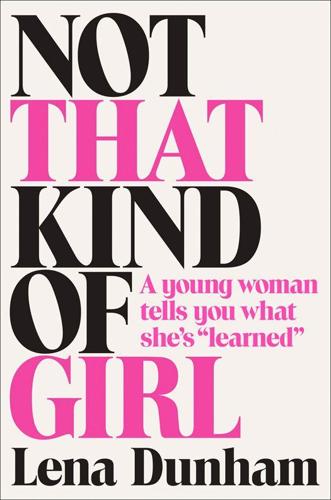
Not That Kind of Girl: A Young Woman Tells You What She's "Learned"
by
Lena Dunham
Published 28 Sep 2014
A scant web presence is so rare these days, alluring in and of itself. She was telling her story through the ancient medium of theater. Months into my Google gumshoe work on Nellie, she appeared at a talk I was doing at the New Yorker festival. It was a hard crowd to make giggle, and they were full of self-serious questions about race and sexual politics that I answered unsteadily, tired and underprepared. Afterward I met Nellie in the green room and shook her frail hand and was surprised by how deep her voice was, like an old British man’s. Her eyes were half closed, her collar buttoned up as high as it could go. She looked like Keats or Edie Sedgwick or some other important dead artist.
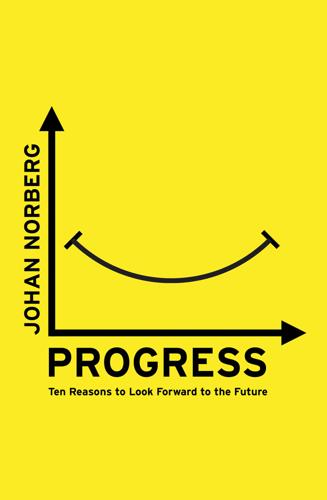
Progress: Ten Reasons to Look Forward to the Future
by
Johan Norberg
Published 31 Aug 2016
Twenge, ‘Attitudes toward women, 1970–1995: a meta-analysis’, Psychology of Women Quarterly, 21, 1 (1997), 35–51. 25 Pinker 2011, p. 408f. 26 Lillian Faderman, The Gay Revolution: The Story of the Struggle. New York: Simon and Schuster, 2015, p. 137. 27 Aaron Day: ‘The PinkNews guide to the history of England and Wales equal marriage’, PinkNews, 15 July 2013. 28 John D’Emilio, Sexual Politics, Sexual Communities, 2nd edn. Chicago: University of Chicago Press, 2012, p. 156. 29 Faderman 2015. 30 ‘The gay divide’, The Economist, 11 October 2014. 10 The next generation 1 Julian L. Simon (ed.), The State of Humanity. Oxford and Cambridge: Blackwell, 1995, p. 27. 2 Eli F. Heckscher, Industrialismen: Den ekonomiska utvecklingen sedan 1750, 4th edition.

The Fran Lebowitz Reader
by
Fran Lebowitz
Published 8 Nov 1994
Naturally, there is more than one such idea, and so I offer what can only be called: A BUNCH OF HALF-BAKED IDEAS TRIAL BY A JURY OF YOUR PEERS ADULT EDUCATION THE NOBLE SAVAGE HERO WORSHIP IMMACULATE CONCEPTION HIGH TECH POPULAR CULTURE FISCAL RESPONSIBILITY SALES TAX HUMAN POTENTIAL SUPER MAN MAY DAY BUTCHER BLOCK SEXUAL POLITICS METHOD ACTING MODERN MEDICINE LIVING WELL IS THE BEST REVENGE When Smoke Gets in Your Eyes … Shut Them As a practicing member of several oppressed minority groups, I feel that I have on the whole conducted myself with the utmost decorum. I have, without exception, refrained from marching, chanting, appearing on The David Susskind Show or in any other way making anything that could even vaguely be construed as a fuss.
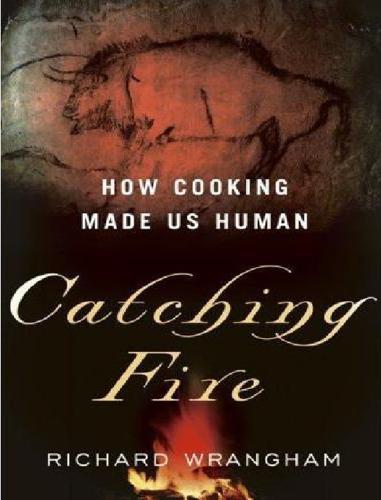
Catching Fire: How Cooking Made Us Human
by
Richard Wrangham
Published 15 Aug 2010
Elashoff, V. Porter-Fink, J. Dressman, and G. L. Amidon. 1988. “Human Postprandial Gastric Emptying of 1-3-millimeter Spheres.” Gastroenterology 94:1315-1325. Mill, J. S. 1966 (1869). “The Subjection of Women.” In Three Essays by J. S. Mill. London: Oxford University Press. Millett, K. 1970. Sexual Politics. New York: Doubleday. Milton, K. 1987. “Primate Diets and Gut Morphology: Implications for Hominid Evolution.” In Food and Evolution: Towards a Theory of Human Food Habits, M. Harris and E. B. Ross, eds., 93-115. Philadelphia: Temple University Press. ______. 1993. “Diet and Primate Evolution.”

Nickel and Dimed: On (Not) Getting by in America
by
Barbara Ehrenreich
Published 2 Jan 2003
ALSO BY BARBARA EHRENREICH Blood Rites: Origins and History of the Passions of War The Snarling Citizen Kipper's Game The Worst Years of Our Lives: Irreverent Notes from a Decade of Greed Fear of Falling: The Inner Life of the Middle Class The Hearts of Men: American Dreams and the Flight from Commitment Re-making Love: The Feminization of Sex (with Elizabeth Hess and Gloria Jacobs) For Her Own Good: 150 Years of the Experts' Advice to Women (with Deirdre English) Witches, Midwives, and Nurses: A History of Women Healers (with Deirdre English) Complaints and Disorders: The Sexual Politics of Sickness (with Deirdre English) The Mean Season: The Attack on the Welfare State (with Fred Block, Richard A. Cloward, and Frances Fox Piven) [1] Eighty-one percent of large employers now require preemployment drug testing, up from 21 percent in 1987. Among all employers, the rate of testing is highest in the South.

People Powered: How Communities Can Supercharge Your Business, Brand, and Teams
by
Jono Bacon
Published 12 Nov 2019
I often recommend to clients that they create a Community Promise, which contains their core values that may be obvious to us but are important to boldly state. This often includes elements such as: •We criticize ideas, not people. •We treat people as equals and everyone is welcome in our community, irrespective of their gender, sexuality, political orientation, or otherwise. •We judge contributions based on their individual merit. •The vast majority of collaboration in our community happens openly, with limited exceptions for security or customer reasons. •We believe in “fail forward.” We don’t demonize people for failure but embrace it to learn and improve.

My Shit Life So Far
by
Frankie Boyle
Published 30 Sep 2009
The moment of epiphany for any soldier is the first time that he is punched in the stomach by his commanding officer. And he realises that his father had been pulling his punches, and had loved him all along.’ Perhaps you need to see me saying it with a beard in a World War I uniform. The last joke in the show was always: ‘I have a thought about sexual politics. Why is it that when I find a vibrator in my girlfriend’s drawer, she’s liberated? Yet when she looks in the chest that I keep under my bed and finds an artificial vagina, I’m a pervert? So what if it is a dog’s vagina that I keep alive with batteries.’ The one night we sold out we did the most disastrous thing we could have done.

Facebook: The Inside Story
by
Steven Levy
Published 25 Feb 2020
Chris Kelly, who was Facebook’s general counsel, sat in too. It wasn’t the kind of discussion that they would bring to Zuckerberg or Moskovitz. “Those thorny interpersonal and sociological and speech issues among users were not the focus of the technical side, which in the hierarchy was the important side,” says Losse, who always approached sexual politics at Facebook with a gimlet eye, especially after she left as a millionaire and wrote a critical book about it. But there was a form of guidance from Zuckerberg, and that informed the discussion. Zuckerberg would often talk about how he wanted Facebook to be a place where people could exercise the First Amendment, even if it meant offending people.
…
yell, 110 Parr, Ben, 140–41, 142 Parscale, Brad, 351–52, 353–54, 421 Partner Categories, 475 Partovi, Ali, 158–59, 165 Partovi, Hadi, 158–59 Path (social network), 225 Payne, Donald, 470 PayPal, 88, 315 Pearlman, Leah, 180, 202, 206 People You May Know (PYMK), 220–26 Perry, Todd, 32–33 personally identifying information (PII), 474, 476 Pesenti, Jérôme, 454 Peters, Gary, 475–76 Petrain, David, 31 Philippines’ 2016 presidential election, 347–48, 435 phone numbers of users, 318, 502–3 photos, 52, 64, 113–15, 301–3 Pichai, Sundar, 468 Pincus, Mark, 79, 86–88, 161–62, 166–69, 178 Place app of Facebook, 310–11 Platform of Facebook and App Review rules, 413 apps suspended from, 430–31 benefits of, 153–54 and Cambridge Analytica, 418 and Causes app of Parker and Green, 155, 162, 164 and developers who were potential competitors, 174 and F8 developers conference, 154, 157–58 and Facebook Connect, 169–70, 171, 173, 268, 297, 408–9 and friend-of-friend user data, 175 games on, 161–63 idea of, proposed, 150 and information sharing, 152 interface for (see application programming interface) misbehavior of developers on, 165–67, 430–31 and News Feed spam wars, 163–65 number of developers writing apps for, 158 and privacy questions, 151, 152–53, 176 release of, 155–56, 157–58 and rise of the Apple and Android platforms, 172–73 rule changes for developers on, 163–65 sharing of user information on, 171–72, 399 and social graph, 156–57 success of, 159 and traffic on FB, 168, 170 and user data, 169–70, 173–74 See also Open Graph Plaxo, 80–81, 84, 116 Plouffe, David, 392–93, 394 Plummer, Dan, 125–26, 214 Podesta, John, 334 Poke app of Facebook, 309, 311, 312–13 pokes in FB system, 64–65, 122, 160, 203, 227 political bias, charges of, 338–42, 343, 429, 458–59 pornography on Facebook, 251–52 Portal feature, 464 Potemkin, Aleksey Aleksandrovich, 336–37 presidential election of 2016, 333–67 and accusations of FB’s partisanship, 340–43 and DCLeaks, 336, 344–45 and expectations for Clinton’s victory, 350, 354 and “Facebook Effect,” 9 and fake news (see fake news and misinformation) interference in (see Russian interference in US presidential election) reaction of FB staff to outcome of, 9, 360 and Sandberg’s leadership of FB, 355, 357, 486 and Trending Topics controversy, 341–42, 345, 346 Trump elected president, 9, 360, 494 voter suppression in, 353, 374 See also Cambridge Analytica; Clinton presidential campaign, 2016; Trump presidential campaign, 2016 presidential election of 2020, 11–12 Pritchard, Marc, 474, 477 privacy and ads on News Feed, 475 availability of user data to public, 402, 404 and Cambridge Analytica, 427, 429 and cell-phone numbers shared on FB, 71, 101 changes in default settings for (2009), 263–67 and congressional hearings, 429 and damaging instant messages of Zuckerberg, 57 and “Dark Profiles,” 129, 205 and data brokers’ access to user data, 269–70 discussed in Book of Change, 122 in earliest FB release, 63–64, 68, 71 and Facemash incident, 50, 53, 144 and Friendster, 69 and FTC investigation and sanctions, 11, 272–74, 402, 478–79 Graham’s questions about, 101 and Graph API V1 (“the Friend API”), 271, 412 and Instant Personalization, 271–72, 409, 424 Lewis’s caveats on, 62 and Like button on external websites, 205 and News Feed feature, 137–38, 143–44 and Next Facebook, 487–88, 513–14, 519 and Onavo Protect, 316–17, 483–85 and Open Graph, 171–72, 176, 267–70, 409, 424, 430 and Open Registration, 122, 144 and opt-in requirement, 64 options that increased, 266 and origins of FB, 53 and People You May Know (PYMK), 221–24 and Platform of FB, 151, 152–53, 176 and purchases by users shared on FB (Beacon), 182–83, 186–89, 212 and removal of objectionable content, 248 and suspicions FB is listening, 475–76 and Synapse’s data mining, 40 and User ID leak, 268–69 Zuckerberg’s perspectives on, 40, 143, 267, 272–73, 487–88, 525 See also Kelly, Chris; Sparapani, Tim profiles in Facebook, 64–65 programming projects of Zuckerberg and ConnectU project of Winklevoss brothers, 56–57, 60, 72–76 Course Match project, 46–47, 61 Facebook as culmination of previous projects, 61 facebook project of Zuckerberg, 53–54, 60–61 Harvard facebook project, 53–54 Harvard Facemash, 47–52, 53, 56, 58, 61, 64 and houseSYSTEM project for Greenspan, 58–59, 60, 64 Rome of Augustus collaboration tool, 54–55, 61 and skills acquisition, 49 Synapse project, 33, 38–41, 44, 47 while at Harvard, 45–52, 54–55 Wirehog project, 92–95 and work habits of Zuckerberg, 77 Project P team, 365–66, 367, 369 propaganda, 346, 349, 364, 365, 376 public company, Facebook’s transition to, 288–93 public figures, harassment of, 253 publishers, 387–90, 391 purchases by users announced on Facebook, 182–83, 186–89 Putin, Vladimir, 367 Qualtrex, 415 Questions feature, 245 Quittner, Josh, 187 Quora, 245, 309 Rabkin, Mark, 198, 199, 201, 294 RapLeaf (data broker), 269–70 Rappler, 347 regulation of FB, calls for, 11 relationship status field in FB, 64, 141, 150 Remnick, David, 362 reputation of Facebook, 11–12, 398, 484–85, 525 Ressa, Maria, 347–48, 435, 486 Risk and Response group, 442–43 Roberts, Sarah T., 445 RockYou, 159–60, 164–65 Roosendaal, Arnold, 205 Rose, Dan, 172, 179, 184–85, 293, 306 Rosen, Guy, 315–16, 448, 452, 455, 477, 480 Rosenberg, Jonathan, 200 Rosenstein, Justin, 180, 182, 202, 203, 206, 473 Rosensweig, Dan, 134, 193 Ross, Blake, 217, 245, 276 Rothschild, Jeff, 105, 124, 143, 243 Royal Bank of Canada, 176 Russian interference in US presidential election and ad purchases, 372–76, 377, 378–79 briefing board of directors on, 379–80 and congressional hearings, 377, 378, 395–96 and DCLeaks, 336, 344–45 DNC emails stolen, 334, 336–37, 344, 353 engagement with FB users, 334 and evasion of FB’s detection, 375 first signals of, 333, 334, 335 and free expression on FB, 376 going public on, 377, 378, 379 and inflammatory messages embedded in graphics, 455–56 and Instagram, 374, 489 and intent to sow conflict, 383, 398, 421–22 and Project P team, 365–66, 367, 369 proof of, 375 and propaganda, 364, 365 spear-phishing attacks, 334, 336 and Stamos’s report, 364–67 and troll farms, 373–76, 395 and voter suppression, 374 white supremacism fueled by, 469 and WikiLeaks, 345 Zuckerberg’s perspectives on, 526 Rust, John, 400, 401, 415–16 Sandberg, Sheryl and author’s research, 15 background of, 190–92 and business plan of Facebook, 198, 199–200 and Cambridge Analytica, 419, 425–26 and Congressional Black Caucus, 469–70 congressional testimony of, 468–69 criticisms of, 356 and culture of FB, 237–38, 243 and data collected by FB, 207 division of labor with Zuckerberg, 194, 255, 355 on fake news disseminated on FB, 346, 359 and FB’s attempts to impugn competitors, 466 and “FOSS” term (friends of Sheryl Sandberg), 200, 339 and free speech, 470–71 frustrations of, 470–71 and FTC investigations, 479 and goals for the future, 469 at Google, 192–93 and husband’s death, 355, 357, 469, 470 and initial public offering, 287–88, 290, 298 and Lean In movement, 467–68 loyalty to Zuckerberg, 473 management style of, 196–97, 200, 356–57 meetings with Zuckerberg, 193–94 and Palihapitiya’s criticism of FB, 474 and Palihapitiya’s growth proposals, 213, 214 and Pincus, 167 and presidential election of 2016, 9, 355, 357 recruiting efforts of, 200–201 recruitment of, 193–94 and Ressa’s warnings, 435 role of, in FB, 194–95 and Russian election interference, 378, 380 and security team, 335–36 and Stamos’s security report, 364, 366–67 and Stamos takedown, 380 and WhatsApp, 504 work style of, 191–92 Sanghvi, Ruchi, 105, 124, 127, 139, 140, 142 satellite launch failure, 5, 6–7, 8, 232, 233 Saverin, Eduardo and advertising sales, 178 background of, 66–67 co-founder role of, 70 and incorporation of FB, 85 and Parker, 82, 98 partnership with Zuckerberg, 66–67 portrayed in The Social Network, 99 stake in FB, 96, 98, 99 terminated from FB, 98–99, 177 and Zuckerberg’s profile in Crimson, 77 Schmidt, Eric, 192, 196 Schmidt, Sophie, 423 Schrage, Elliot and anti-Semitism charges, 466 briefing board of directors, 379 and DCLeaks page, 344 departure of, 479 and Kaplan, 344 and Myanmar situation, 436 and “Napalm Girl” image, 458 and policy making, 357 and Ressa’s warnings, 435 role of, in FB, 200 and Sandberg, 357 Schroepfer, Mike, 282, 454, 471 Schultz, Alex, 217, 219–20, 224, 234, 435, 455, 511 Scissors, Lauren, 408 SCL, 410–15, 417, 419, 421–24 Scrabble app, 162 search engine optimization (SEO), 219–20 search engines, visibility of users’ details to, 264 security measures of Facebook additional staff hired for, 476 and Election War Room (2018), 485 and encryption, 500–501, 513–14 Growth team’s oversight of, 477 Stamos’s leadership of, 335–36 Selby, Brad, 161, 169–70 Semel, Terry, 133, 134, 135 Senate Judiciary hearing, 395–96 server space for Facebook, 66, 67, 97–98, 100, 105, 115 sexual politics on Facebook, 249 shadow/dark profiles, 129–30, 205, 222–23 sharing dynamics of Facebook users, 171, 401, 405 Shavell, Rob, 205 Silver, Ellen, 440 Simo, Fidji, 390, 439, 510 Sittig, Aaron and Book Reviews app, 155 and Like button, 203 and News Feed feature, 130, 140 and Photos feature, 114–15 recruitment of, 90–92 and recruitment of computer science engineers, 106–7 and redesign of FB, 113 on Wirehog project, 92 sixdegrees, 19–22, 80, 87, 522 Six Degrees to Harry Lewis, 61–62 Six4Three lawsuit, 465 “61-Million-Person Experiment in Social Influence and Political Mobilization, A” study, 337–38 Slashdot, 40–41 Slee, Mark, 217, 259–60, 261 Slide, 152, 159–61, 164 slogans used at Facebook, 241–43 smartphone, Facebook, 284–87 Smith, Ben, 390 Snapchat, 307–9, 316–17, 496–99 Snowden, Edward, 501 social advertising, 180–81, 183, 185 social graph, 156–57.

A Book for Her
by
Bridget Christie
Published 1 Jul 2015
Anthony (1872) Solitude of Self, Elizabeth Cady Stanton (1892) Woman, Kate Austin (1901) The Evolution of Sex, Dora Montefiore (1909) The Age of Innocence, Edith Wharton (1920) A Room of One’s Own, Virginia Woolf (1929) The Second Sex, Simone de Beauvoir (1949) The Feminine Mystique, Betty Friedan (1963) The Bell Jar, Sylvia Plath (1963) Sexual Politics, Kate Millett (1968) I Know Why the Caged Bird Sings, Maya Angelou (1969) The Female Eunuch, Germaine Greer (1970) The Dialectic of Sex: The Case for Feminist Revolution, Shulamith Firestone (1970) Of Woman Born: Motherhood as Experience and Institution, Adrienne Rich (1976) Fat is a Feminist Issue, Susie Orbach (1978) Ain’t I a Woman?
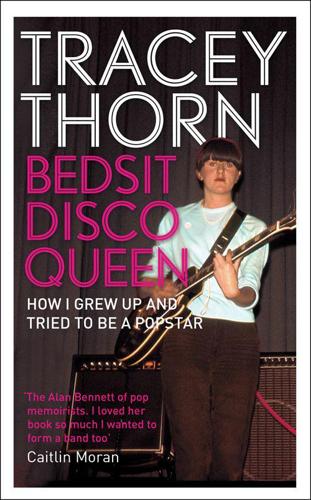
Bedsit Disco Queen: How I Grew Up and Tried to Be a Pop Star
by
Tracey Thorn
Published 7 Feb 2013
He came along to interview us in 1984 with the intention of trying to find out what we were like as people, and get a sense of our relationship. We completely stonewalled him and were humourless and earnest. The article makes me cringe now. He was trying fairly harmlessly to get us to admit we fancied each other, but we were too wrapped up in our right-on sexual politics to talk about such a thing, so he came to the conclusion that we were more friends than lovers. Nothing could have been further from the truth. Like any self-respecting new couple, we had spent the entire previous year in bed, but it didn’t seem cool to tell that directly to the NME. We gave off the opposite impression – of being coy and sexless, and having a slightly suspect brother–sister type relationship, like the White Stripes.

Genius: The Life and Science of Richard Feynman
by
James Gleick
Published 1 Jan 1992
Feynman spoke of women as he always had—“a nifty blonde, perfectly proportioned”; “a cornfed, rather fattish-looking woman.” They appeared as objects of flirtation, nude models for his drawings, or “bar girls” to be tricked into sleeping with him. He knew that his diction was not wholly innocent. Sexual politics had caught up with him before, at the 1972 meeting of the American Physical Society in San Francisco, where he accepted the Oersted Medal for contributions to the teaching of physics. His personal relationships were not the issue, although in the male world of Caltech a part of his glamorous reputation with envious students came from his apparent sway over women.
…
V., 412 Royal Air Force, 236–37 Rubáiyát (Omar Khayyám), 343 Russell, Henry Norris, 115 Ruth, Babe, 43–44, 327 Rutherford, Ernest, 71 S matrix, 267, 329 safecracking, 15, 189–90 Sakharov, Andrei, 297 Salam, Abdus, 405, 431 Salieri, Antonio, 322 Salk, Jonas, 133 samba, 286, 340 Sands, Matthew, 343, 363 Schein, Marcel, 304 Schrieffer, Robert, 303 Schrödinger, Erwin, 73–75, 88, 128, 232, 242, 246, 367 cat, 243 Schrödinger equation, 73, 88–89, 102, 129, 146–47, 174, 249, 301, 436 Schweber, Silvan S., 348, 386–87 Schwinger, Julian, 158, 215–16, 227, 243, 295, 309, 395 childhood, 48–49 early papers, 48–49 Feynman and, 16, 49, 252, 377–79 Nobel Prize, 377–79 at Pocono, 5–6, 255–58 quantum electrodynamics and, 239, 241, 251–53, 255–63, 266–69, 271, 275–77, 279–80, 321, 347, 367 at Shelter Island, 233–34 students, 276–77, 378 science as career, 52–53 creativity in, 314, 321, 324–26, 409 experimental attitude, 14–16, 19 explanation in, 29 laws of, 13–14 military financing of, 4, 209–11, 294–95, 385 religion and, 31–32, 58–60 Science, 145 science fiction, 121, 235, 255, 299 Scientific American, 104, 414 scientists aging of, 347 as children, 17, 19 as craftsmen, 321–22 as nerds, 44, 63 patriotism of, 137 public view of, 40–42, 44, 203 Scobee, Francis, 415–16 Segrè, Emilio, 198–99 seismology, 281–82 Selective Service, 222–25, 297 Serber, Robert, 163, 168–69, 173 sexual politics, 287–91,411–12 Shaaray Tefila, 23 Shakespeare, William, 313, 314, 317, 325, 328 Shelter Island conference (1948), 232–34 Shockley, William, 85, 137 Siegel, Carl Ludwig, 98 simplicity, see nature, simplicity in Sitwell, Edith, 106 Slater, John C, 40, 53–55, 67–68, 83–91, 94, 301, 366 Slotin, Louis, 196–97 Slotnick, Murray, 270–72, 282 Smith, Lloyd, 263 Smith, Michael, 415 Smyth, Harry D., 84, 137, 140, 144, 149–50, 164, 227 Snow, C.
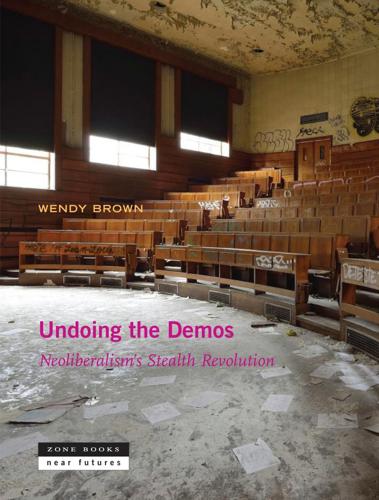
Undoing the Demos: Neoliberalism's Stealth Revolution
by
Wendy Brown
Published 6 Feb 2015
This is the subject split between “citizen” and “bourgeois” that dogged liberal democratic theory for two centuries, that Marx makes the basis of his critique of the liberal state, and that the neoliberal form of homo oeconomicus will finally leave behind. 60. See Melissa Cooper’s Family Values: Neoliberalism, New Social Conser vatism, and the Sexual Politics of Capital (forthcoming from Zone). 61. See Jean Elshtain, Public Man / Private Woman: Women in Social and Political Thought (Princeton: Princeton University Press, 1993); Wendy Brown, Manhood and Politics: A Feminist Reading in Political Theory (Totowa, NJ: Rowman and Littlefield, 1988); Kathy Ferguson, The Man Question: Visions of Subjectivity in Feminist Theory (Berkeley: University of California Press: 1993); Linda Zerilli, Signifying Woman: Culture and Chaos in Rousseau, Burke, and Mill (Ithaca: Cornell University Press, 1994).

Paris Revealed
by
Stephen Clarke
Published 12 Aug 2012
We cross the street towards the Chamber of Agriculture and, nervously, I ask her opinion. She reflects for a moment, and then says that the show was much classier than she’d expected. ‘And I’d really like to know how that girl took off her stockings without taking off her shoes.’ It’s a conclusion that says as much about Parisian sexual politics as it does about the city’s erotic cabaret. Où est le sexe? Where, then, does this leave Parisian sex? The city cherishes its reputation for being completely uninhibited and free-speaking. Deep down, it still thinks its theme tune is Serge Gainsbourg’s song ‘Je T’Aime, Moi Non Plus’*****, which contains a chorus that can be hilariously translated, rather like one of the old French sex films, as ‘I come and I go, between your kidneys, and I restrain myself.’
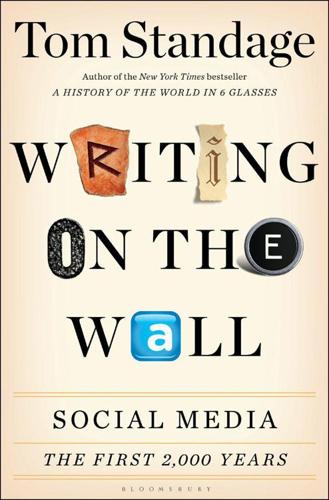
Writing on the Wall: Social Media - the First 2,000 Years
by
Tom Standage
Published 14 Oct 2013
Royalism, Print and Censorship in Revolutionary England. Woodbridge, Suffolk: Boydell Press, 2007. McIntyre, S. “‘I Heare It So Variously Reported’: News-Letters, Newspapers, and the Ministerial Network in New England, 1670–1730.” New England Quarterly 71, no. 4 (December 1998): 593–614. Merrick, J. “Sexual Politics and Public Order in Late Eighteenth-Century France: The Mémoires Secrets and the Correspondance Secrète.” Journal of the History of Sexuality 1, no. 1 (July 1990): 68–84. Mierow, C. C. “Julius Caesar as a Man of Letters.” Classical Journal 41, no. 8 (May 1946): 353–357. Mithen, S. The Prehistory of the Mind: A Search for the Origins of Art, Religion and Science.

Drugs 2.0: The Web Revolution That's Changing How the World Gets High
by
Mike Power
Published 1 May 2013
Most of the UK had no idea what the drug was, or that it even existed, or that the Beatles had taken it. Neither did the Beatles, initially, since their drinks were spiked with it by their dentist after dinner one evening.9 But the drug soon entered the culture and it popularized, if not normalized, recreational drug use in that era and beyond, and revolutionized youth culture, sexual politics, music and art on both sides of the Atlantic. Times were changing; in Western Europe and the US drugs saturated everyday life. LSD was banned in the UK in 1966. During the debate on legislating against the drug, even Britain’s staid law lords revealed themselves to be strangely fascinated by it, with one, Lord Saltoun, asking, ‘May I ask the noble Lord whether LSD-25 is the drug that enables you to remember what happened when you were born?

Zeitgeist
by
Bruce Sterling
Published 1 Nov 2000
Norwegian Wood, Murakami’s first novel, was the narrative keystone of the Murakami oeuvre, in that it was all about an appallingly hip, soulful, and sensitive Japanese dude, with tremendously good taste in clothing and music, who is way too good for this sorry world, and is right on the verge of deciding to kill himself—but then, his girlfriend obligingly kills herself first. Only people who weren’t Japanese could be crass enough to find this story line funny. From a Japanese perspective this was a tale of total sexual, political, and existential authenticity. There had been one crucial, Suntory-whiskey-and-Gekkeikan-sake-drenched night in Goruden Gai when, over the drunken bellowing of the sweating, tightly packed crowd in an ultrahip bar the size of a phone booth, Makoto had been getting this crucial narrative point across to Starlitz.

Possible Minds: Twenty-Five Ways of Looking at AI
by
John Brockman
Published 19 Feb 2019
Moreover, craft-minded engineers had already been making turtles, jugglers, and light-seeking robot babes, not giant brains. Using breadboards, copper wire, simple switches, and electronic sensors, artists followed cyberneticians in making sculptures and environments that simulated interactive sentience—analog movements and interfaces that had more to do with instinctive drives and postwar sexual politics than the automation of knowledge production. Now obscured by an ideology of a free-floating “intelligence” untethered by either hardware or flesh, AI has forgotten the early days of cybernetics’ uptake by artists. Those efforts are worth revisiting; they modeled relations with what the French philosophers Gilles Deleuze and Félix Guattari have called the “machinic phylum,” having to do with how humans think and feel in bodies engaged with a physical, material, emotionally stimulating, and signaling world.

China's Good War
by
Rana Mitter
She noted that an old lady from Beijing about her age often wrote her “long, long” letters, saying that although she grew up in a red revolutionary family, she still became emotional and cried while reading Qi’s story.49 This cross-strait wartime memoir was an unexpected success, but many other, untold stories remain buried. The accounts of women forced into sex slavery (“comfort women”) by the Japanese seem to have been too sensitive to cover broadly, both in terms of their sexual politics and the always delicate question of diplomatic relations with Japan; Su Zhiliang’s display on them at his university in Shanghai is one of the rare manifestations of this issue in a public forum in China.50 War Memory, Insider Politics, and the Bo Xilai Affair The revival of memory about wartime Chongqing became entangled with one of the strangest, most high-profile moments in the city, and for that matter in China’s post-Mao history: the rise and fall of the senior Communist leader Bo Xilai.
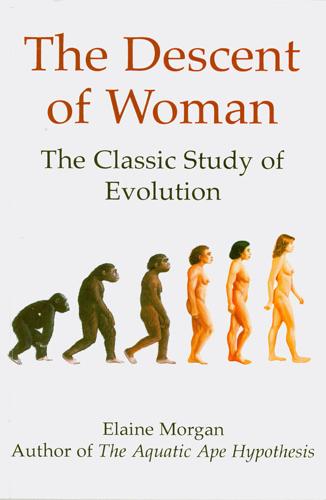
The Descent of Woman
by
Elaine Morgan
Published 1 Feb 2001
Within such groups they often find it heartening to get together to boost one another’s morale when things are falling apart. Anyone who really wants to improve the status of woman as a whole should make it a point of honour to send the same friendly signals across these frontiers also, when occasion arises. Out with the hate bit, then. I admit to feeling uneasy on this account about Kate Millett’s Sexual Politics, as well as a few other liberationist writings along the same lines. It’s a highly intelligent book meticulously analysing the pornographic fantasies incorporated in the works of some high-rating and best-selling male authors. But what is Kate Millet’s book for? What it is saying to women seems to be something like: ‘This is what men really think of us.

Four Arguments for the Elimination of Television
by
Jerry Mander
Published 1 Jan 1977
EFFECTS OF TELEVISION ON THE HUMAN BEING the National Institute of Mental Health for the Department of Health, Education and Welfare, reports that a majority of adults, nearly as high a percentage as children, use television to learn how to handle specific life problems: family routines; relationships with fellow workers; hierarchical values; how to deal with rebellious children; how to understand deviations from the social norm, sexually, politically, socially and inter- personally. The overall fare of television situation-comedies and dramatic programs is taken as valid, useful, informative, and, in the words of the report, "true to life." Most viewers of television programming give the program- ming concrete validity, as though it were not fictional.
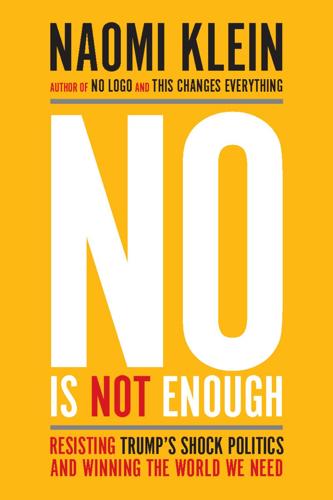
No Is Not Enough: Resisting Trump’s Shock Politics and Winning the World We Need
by
Naomi Klein
Published 12 Jun 2017
The goal is all-out war on the public sphere and the public interest, whether in the form of antipollution regulations or programs for the hungry. In their place will be unfettered power and freedom for corporations. It’s a program so defiantly unjust and so manifestly corrupt that it can only be pulled off with the assistance of divide-and-conquer racial and sexual politics, as well as a nonstop spectacle of media distractions. And of course it is being backed up with a massive increase in war spending, a dramatic escalation of military conflicts on multiple fronts, from Syria to North Korea, alongside presidential musings about how “torture works.” Trump’s cabinet of billionaires and multimillionaires tells us a great deal about the administration’s underlying goals.
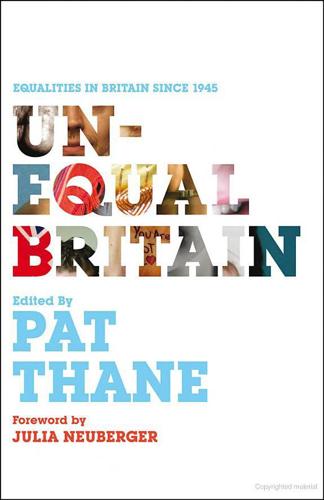
Unequal Britain: Equalities in Britain Since 1945
by
Pat Thane
Published 18 Apr 2010
It developed a more formal organization, with a constitution, an elected executive and regional officers. The Beaumont Society was criticized by sections of the gay and women’s movements and other trans 148 U N E Q UA L B R I TA I N groups for its low-profile approach, operating as a ‘closed closet’, failing to engage with contemporary sexual politics and criticism of marriage and family structures, and for the exclusion of transsexuals, homosexuals and fetishists from its membership.123 However, one of the society’s founders, Alice L100, explained that the society dissociated itself from the gay movement to overcome the assumption that cross-dressing men were necessarily gay (many of its members were married, and support for wives was a central part of the society’s activities) or touting for sex.124 The Beaumont Society now allows homosexual transvestites to join, but an offshoot, the Seahorse Society, retains the original focus on heterosexual transvestites.
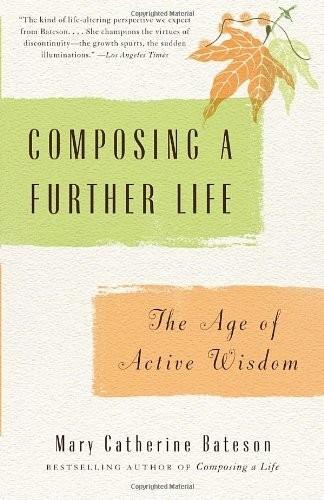
Composing a Further Life: The Age of Active Wisdom
by
Mary Catherine Bateson
Published 13 Sep 2010
Like others who have grown up during struggles for “liberation” or against discrimination, they have had the experience of learning to look differently at themselves and at their peers and have had to resist internalized oppression as their own aspirations rubbed up against those of others newly claiming a place in the sun. By 1975, Dan’s career in music education had run into a series of obstacles, complicated by various kinds of sexual politics. He had married after college and had two children, a daughter and a son. The pattern of the time had him making the decisions about where the family would live to fit the availability of jobs, and about returning to school, but at the same time, Dan said, “It was a very strange thing because our agreement was we won’t have any kids until we get out of school, but she had suddenly gone and stopped using her birth control pill.… I like women, but I find that there is a major nesting instinct that hits hard and wide.”

Family Trade
by
Stross, Charles
Published 6 Jan 2004
Great class, behaves like a real gentleman, then again, he’s probably a gold-plated bastard under the smooth exterior. That, or Uncle Angbard is trying to throw us together for some reason. And he is a tough cookie. Right out of The Godfather. Trust him as far as you can throw him.” She leaned back farther. “Next Memo: sexual politics. These people are basically medievals in suits. Olga is the giveaway, but the rest of it is pretty hard to miss. Better not talk about Ben or the divorce, or the kid, they might get weird. Maybe I can qualify as an aged spinster aunt who’s too important to mess with, and they’ll leave me alone.

The Mystery of Charles Dickens
by
A. N. Wilson
Published 3 Jun 2020
Economists, social commentators and journalists tried to explain what had happened, and what was happening, which is why men and women turned the pages of Taine, de Tocqueville, Marx, Carlyle, Bentham, Mill. In a mysterious way, however, all these commentators, however astute, left something out. Balzac anatomized the convulsions in the class system, the money dramas, the sexual politics of his generation more accurately than any journalist or historian. Tolstoy told Russians the history of their patriotic war, the conditions in which they now lived, the spiritual crises of their Church and political classes more vividly than anyone. Dickens’s anatomy of British society was no less powerful.
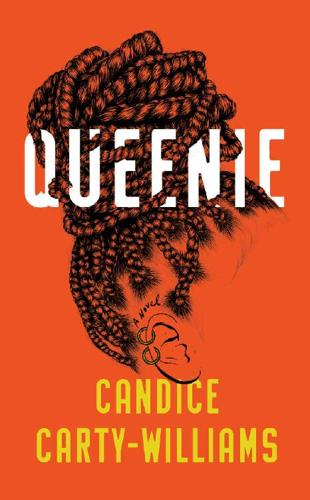
Queenie
by
Candice Carty-Williams
Published 19 Mar 2019
–Louise O’Neill, bestselling author of Asking for It “Candice Carty-Williams is a fantastic new writer who has written a deliciously funny, characterful, topical, and thrilling novel for our times.” –Bernardine Evaristo, author of Mr. Loverman “Hilarious and off the wall and tender.” –Nikesh Shukla, author of The One Who Wrote Destiny “A really special book with much to say about black female identity, sexual politics, group chats, emotional becoming, in a way that feels totally unforced. Filthy, funny, and profound.” –Sharlene Teo, award-winning author of Ponti “I ate up Queenie in one greedy, joyous gulp last night. What a treat of a book. Lots to enjoy and think about. I loved Queenie and was cheering her on all the way.

The Secret History of the Mongol Queens
by
Jack Weatherford
Published 14 Oct 2010
In the longer term, however, she and the Ming emperor, using intermediaries and proxies, would become involved in an indirect but lifelong struggle for control over the borderlands, while living lives that would have uncanny, and probably not coincidental, similarities. 9 The Falling Prince and the Rising Queen SEXUAL POLITICS DESTROYED THE COURT OF MANDUUL KHAN. The Tibetan chronicle states that the horrendous charges and countercharges about the incidents were too dreadful to repeat, but of course the author teases the reader with a hazy sketch of events displayed to tantalize more than inform. The Mongolian chroniclers more eagerly described specific details of some events while obscuring others, depending on the genealogical connections and political allegiances of the writer.

The Caryatids
by
Bruce Sterling
Published 24 Feb 2009
You should take him seriously, he’s an important political development.” “He’s a tribal lunatic! There’s no reason for you to involve yourself with him! What do you expect to gain from him? There’s nothing left but sand and land mines between here and Kazakhstan!” Why was Mishin so bitterly jealous? His sexual politics were his worst flaw. Yes, true, she had a penchant for taking lovers, but this was China. For every hundred women in China there were a hundred and thirty men. What else should the world expect? And Jiuquan, a deeply technical city, had an even more destabilizing male-female imbalance. Mishin was from Russia, where the men died young and the women were lonely.

Love's Executioner
by
Irvin D. Yalom
Published 1 Jan 1989
It was as though I wasn’t there, or at least the part of me that hurts and pulls me down. I just stopped thinking and worrying about me. I became a we.” The lonely I ecstatically dissolving into the we. How often I’ve heard that! It’s the common denominator of every form of bliss—romantic, sexual, political, religious, mystical. Everyone wants and welcomes this blissful merger. But it’s different with Thelma—it’s not that she wants it, but that she has to have it in order to escape some danger. “That fits with what you told me about sex with Matthew—that it wasn’t important that he be in you. What was important was that he connect or even fuse with you.”
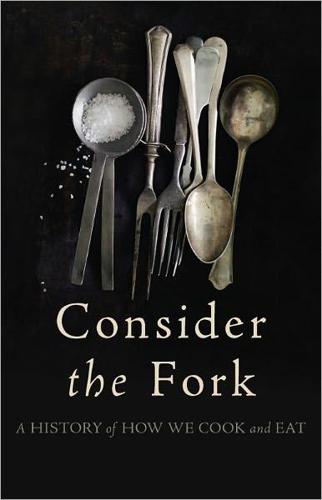
Consider the Fork: A History of How We Cook and Eat
by
Bee Wilson
Published 14 Sep 2012
“Ground-Stone Tools and Hunter-Gatherer Subsistence in Southwest Asia: Implications for the Transition to Farming.” American Antiquity, vol. 59, no. 2, pp. 238–263. Yarwood, Doreen (1981). British Kitchen: Housewifely Since Roman Times. London, Batsford. Young, Carolin (2002). Apples of Gold in Settings of Silver: Stories of Dinner as a Work of Art. London, Simon and Schuster. ————(2006). “The Sexual Politics of Cutlery,” in Feeding Desire: Design and the Tools of the Table, edited by Sarah D. Coffin et al. New York, Assouline, in collaboration with Smithsonian Cooper-Hewitt, Young, H. M. (1897). Domestic Cooking with Special Reference to Cooking by Gas, 21st edition. Chester, H. M. Young. INDEX Abbott’s Kitchen Adrià, Ferran AeroPress Aetna Ironworks Afghanistan Africa Agriculture All-Clad Aluminum Amazonian tribes America knives in measurement in American Cooking (Simmons) Anderson, E.

9Tail Fox
by
Jon Courtenay Grimwood
Published 19 Oct 2005
Her bed wasn’t really big enough for Bea, never mind for both of them and the way it was positioned against a wall meant Bobby lay half on/half off, his back to the open door. ‘No. Not really.’ ‘That’s usually the reason men ask …’ Bea was matter of fact, as if this was unqualifiably true, so maybe it was. Her PhD was in sexual politics, one of the things that made her relationship with Sanchez so interesting; another was a ring of bruises around her upper wrists. So far, both of them had been too polite to mention those. ‘I just wondered,’ said Bobby. Actually, he knew it was at least a year because he’d seen a photograph in the Chronicle.

Burning Down the Haus: Punk Rock, Revolution, and the Fall of the Berlin Wall
by
Tim Mohr
Published 10 Sep 2018
A few feet beyond the hall, you are totally immersed in another world—the darkness and smoke are so thick and disorienting that you feel as if you’re suspended in air, and any sense of time or space fades. There is just the austere boom-tick-boom-tick of the city’s signature sound, minimal techno, and the thump of the bass compressing your chest, practically lifting you off your feet. Sexual politics are a non-issue in here, and people—gay, straight, bi, women, men, transgendered—writhe as one, slip-sliding up against each other awash in sweat, smoke, and jubilation. The club was founded by a twelve-person collective, almost all of whom have connections to squats in the former East, particularly to Köpenickerstrasse 137.
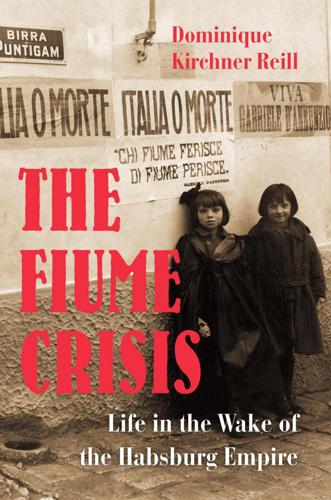
The Fiume Crisis
by
Dominique Kirchner Reill
Published 1 Dec 2020
The 32-year-old war w idow Anna Lenaz née Svat went to the police to complain that neighbors had heaped “scandalous epithets” on her 15-year-old d aughter, including gems like, “Look at that whore and that daughter of a whore, you are the ass for all the Italians, you lost your honor at the age of 10.”101 For many Fiumians, the sexual politics connected to the arrival of the Italian soldiers definitely did not belong in the normative world of Fiume. And neither did the Italian soldiers. Interestingly enough, the passing over of Italian soldiers’ and legionnaires’ pertinency petitions did not cause a scandal, a fact best explained by another lived reality: the soldiers’ uniforms w ere badges much more powerful than Fiume identity cards.

Jerusalem: The Biography
by
Simon Sebag-Montefiore
Published 27 Jan 2011
His magi, the Persian priests, interpreted this to mean that his grandsons would threaten his rule. Astyges married his daughter to a weak, unthreatening neighbour to the east, the King of Anshan. This marriage spawned an heir, Kourosh, who became Cyrus the Great. Astyges dreamed again that a vine was growing from between his daughter's fecund thighs until it overshadowed him - a sexual-political version of Jack and the Beanstalk. Astyges ordered his commander Harpagus to murder little Cyrus, but the boy was hidden with a shepherd. When Astyges discovered that Cyrus was not dead, he butchered and cooked Harpagus' son and served him to his father as a stew. It was not a meal that Harpagus would easily forget or forgive.
…
Now he found Egypt divided in a vicious struggle between King Ptolemy XIII and his sister-wife Cleopatra VII to secure for Rome the richest prize of the East: Egypt. But he could not have foreseen how this young queen, deposed from the throne and in desperate straits, would shape his will to her own ends. Cleopatra demanded a secret audience with the master of the Roman empire. This accomplished impresario of sexual-political pantomime had herself carried into Caesar's palace wrapped in a laundry bag (not a carpet) - perhaps divining that he was susceptible to such theatrical excitement. Gaius Julius Caesar, battleworn and grizzled, was fifty-two and self-conscious about his balding pate. But this astounding if somewhat chilling life-force, possessed of all the talents of war, letters and politics, and the remorseless energy of a younger man, was also a sexual adventurer who had slept with the wives of both Crassus and Pompey.
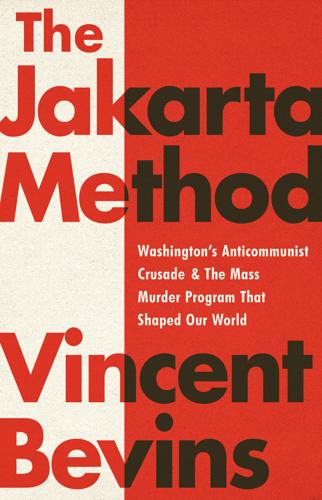
The Jakarta Method: Washington's Anticommunist Crusade and the Mass Murder Program That Shaped Our World
by
Vincent Bevins
Published 18 May 2020
In Indonesian, BTI is Barisan Tani Indonesia, LEKRA is Lembaga Kebudayaan Rakyat, and SOBSI is Sentral Organisasi Buruh Seluruh Indonesia. In English, these are sometimes translated as the Peasants Front of Indonesia, the Institute for the People’s Culture, and the All-Indonesian Federation of Workers’ Organizations, respectively. 16. Wieringa, Propaganda and Genocide, 106. For more on Gerwani, see also Saskia Wieringa, Sexual Politics in Indonesia (The Hague: Palgrave, 2002). 17. Author interviews with Sumiyati, 2018, in Solo, Indonesia. 18. Harian Rakjat, May 19, 1958. 19. Jones, Indonesia: The Possible Dream, 115–18. 20. Ibid., 119–20. 21. “Aid to Indonesian Rebels,” New York Times, May 9, 1958. 22. For an account of Pope’s attacks on Ambon, told from the perspective of the pilots, see Kenneth Conboy and James Morrisson, Feet to the Fire: CIA Covert Operations in Indonesia, 1957–1958 (Naval Institute Press, 1999), 115–140.

Tripping on Utopia: Margaret Mead, the Cold War, and the Troubled Birth of Psychedelic Science
by
Benjamin Breen
Published 16 Jan 2024
“Margaret Mead was a realist”: Rhoda Métraux, “The Study of Culture at a Distance: A Prototype,” American Anthropologist 82, no. 2 (1980): 362–73. “I think I’ll have to put off”: MM to Gotthard Booth (draft letter), November 8, 1954, K65:5, MM papers. “I’ve not forgotten”: MM to Harold Abramson (draft letter), November 8, 1954, K65:5, MM papers. In June 1953: John D’Emilio, Sexual Politics, Sexual Communities, 2nd ed. (Chicago: University of Chicago Press, 1998), citing Mattachine Society Coordinating Council minutes, June 26, 1953, and July 10, 1953, in Don Lucas papers, Stanford University, p. 83. Then one day the scorned husband: This event is described in Banner, Intertwined Lives, citing MM to RB, February 29, 1940; March 2, 1940, S5, MM papers; MM to GB, February 27, 1940, S1, MM papers.

State of Emergency: The Way We Were
by
Dominic Sandbrook
Published 29 Sep 2010
Ranging across popular culture, literature and social mores, he re-creates that lost world with a flair all the more impressive when you realise he was born in 1974 … No one who reads State of Emergency will think of the decade in quite the same way again’ John Gray, New Statesman ‘Magisterial … for me a Proustian experience’ Andrew O’Hagan, London Review of Books ‘As he proved in his earlier works, Sandbrook is a masterly magpie. Nothing escapes his gaze, from the silk lavender dressing-gowns sported by Peter Wyngarde’s Jason King, through the sexual politics of Doctor Who, to John “never one to miss a bandwagon” Lennon sending a cheque to support the striking Clyde shipworkers. Throw in deft précis of the rise in football hooliganism and birth of the mugger, the introduction of the Pill and boom in pornography, and the depressing side-effects of brutalist council blocks, and you have as eclectic a historical grab-bag as you could wish for’ Christopher Bray, Independent on Sunday ‘Meticulously fair … The paradoxes of the Seventies are brilliantly dissected and analysed’ Simon Griffith, Mail on Sunday ‘Detailed and authoritative … sophisticated and nuanced … Sandbrook is both knowledgeable and entertaining … this is a fine addition to what is becoming a monumental series on the history of modern Britain’ Adrian Bingham, BBC History Magazine ABOUT THE AUTHOR Dominic Sandbrook was born in Shropshire in 1974, an indirect result of the Heath government’s three-day week giving couples more leisure time.
…
One key influence was the bohemian underground of the late 1960s, which was fertile soil for ideas of liberation and self-realization, and which included prominent future feminists such as Rosie Boycott, Germaine Greer and Rowbotham herself. In fact, although the well-educated young men and women who made up the counterculture thought of themselves as radicals and revolutionaries, their sexual politics were unattractive, to say the least. The gospel of free love was supposed to be a way of challenging bourgeois ideology; it was also, of course, a way for young men to blackmail women into sleeping with them. ‘Chicks’, as the underground journalist Richard Neville called them, were told that they were conservative or boring if they refused male attention.

The Rough Guide to Prague
by
Humphreys, Rob
Franz Kafka A German-Jewish Praguer, Kafka has drawn the darker side of central Europe – its claustrophobia, paranoia and unfathomable bureaucracy – better than anyone else, both in a rural setting, as in The Castle, and in an urban one, in one of the great novels of the twentieth century, The Trial. Ivan Klíma A survivor of Terezín, Klíma is another writer in the Kundera mould as far as sexual politics goes, but his stories are a lot lighter. Judge on Trial, written in the 1970s, is one of his best, concerning the moral dilemmas of a Communist judge. Waiting for the Dark, Waiting for the Light is a pessimistic novel set before, during and after the Velvet Revolution of 1989. The Spirit of Prague is a very readable collection of biographical and more general essays on subjects ranging from Klíma’s childhood experiences in Terezín to the current situation in Prague.

The Master Switch: The Rise and Fall of Information Empires
by
Tim Wu
Published 2 Nov 2010
Apparently taken from an interview with Bob Hope in the mid-1970s, this ironic quote by the founder of one of the nation’s most watched news networks is from Patrick Parsons, Blue Skies: A History of Cable Television (Philadelphia: Temple University Press, 2008), 453. 8. This point is drawn from Becker’s book on modern cultural identities and sexual politics as examined through the lens of media coverage and representation of gay America: Ron Becker, Gay TV and Straight America (New Brunswick, NJ: Rutgers University Press, 2006), 86. 9. Cass R. Sunstein, Republic.com 2.0 (Princeton, NJ: Princeton University Press, 2007), xi. 10. Ken Auletta, Three Blind Mice: How the TV Networks Lost Their Way (New York: Random House, 1991), 5.
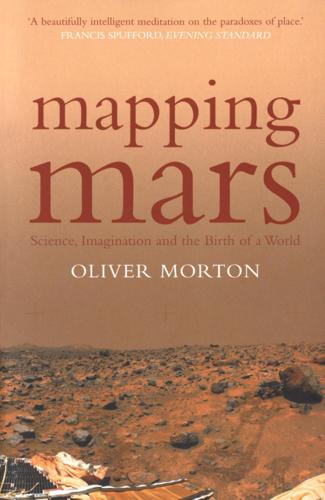
Mapping Mars: Science, Imagination and the Birth of a World
by
Oliver Morton
Published 15 Feb 2003
In 1981 the Underground gathered their network of sympathizers for a conference to marshal the arguments for sending people to Mars. Benton Clark, who had worked on Viking at Martin Marietta, the company that built the lander, had written a paper in 1978 called “After Viking—The Case for Man on Mars” that had inspired them; shortening his title and correcting its sexual politics, they called their conference the Case for Mars. That meeting was the first in what turned out to be a triennial series. The meetings often had a strange, fringe-y feeling (McKay, in particular, insisted that no one be excluded as a flake) but that was part of their charm. Where else could you see Hal Masursky slowly and carefully study computer enhancements of the “Face on Mars” before delivering his damning verdict: a drawn-out “Naah” spoken with the authority of a man who had looked at Mars as much, if not as meticulously, as anyone alive.
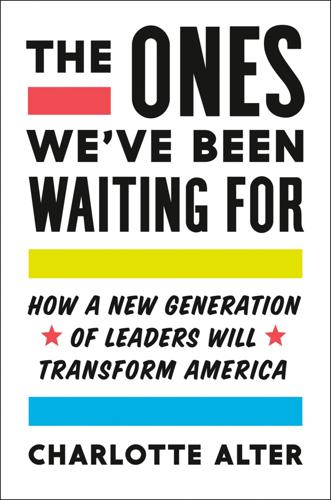
The Ones We've Been Waiting For: How a New Generation of Leaders Will Transform America
by
Charlotte Alter
Published 18 Feb 2020
These events shaped their personal experiences—they fought overseas, or experienced the economic collapse firsthand, or worked in the Obama White House—but also informed the broader attitudes of their peers. Millennials are more financially precarious, less likely to support war overseas, and significantly more progressive than their parents on most issues. They’ve largely abandoned the sexual politics of the Christian right and feel significantly more urgency around addressing climate change. They grew up in an America that is more diverse and more socially progressive than any time in history, and their lives reflect both the increased opportunities for women and people of color, and the work still left to do.

Overwhelmed: Work, Love, and Play When No One Has the Time
by
Brigid Schulte
Published 11 Mar 2014
She was distressed that radical feminists, who proclaimed “marriage constitutes slavery for women,”8 had become so vocally antimother, antifamily, and antimale. Though the women’s movement did so much to open doors to higher education and careers for women, Friedan was concerned that its attention was being diverted by “the emotion-ridden issues of sexual politics” and “abortion hysteria,”9 and risked not only alienating women but failing to do the harder work of transforming the institutions and attitudes of society so that all people could do good work, share in raising families, and have time for life. Friedan watched mothers trying to do it all, too exhausted to be angry.
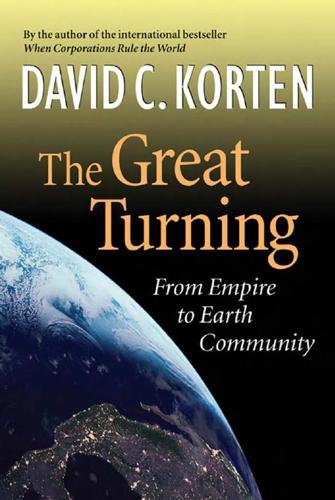
The Great Turning: From Empire to Earth Community
by
David C. Korten
Published 1 Jan 2001
Those persons of foreign birth who were granted citizenship under the administration of Cleisthenes were an exception. Aristotle, arguably the greatest of all the Greek philosophers, was ineligible to become a citizen of Athens and was for this reason denied appointment as the head of the Academy of Plato in Athens following Plato’s death. 6. Eva Keuls, The Reign of the Phallus: Sexual Politics in Ancient Athens (Berkeley and Los Angeles: University of California Press, 1993). See also Riane Eisler, Sacred Pleasure: Sex, Myth, and the Politics of the Body (New York: HarperCollins, 1995), 104–7. 7. Durant, Heroes of History, 80. 8. Jean L. Cohen and Andrew Arato, Civil Society and Political Theory (Cambridge, MA: MIT Press, 1992), 85. 9.
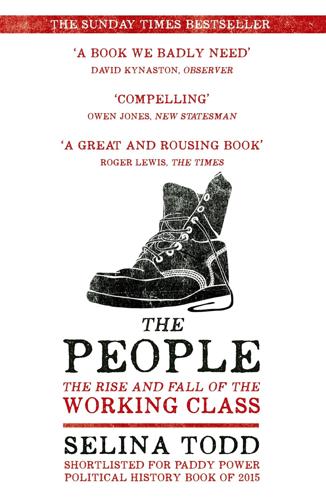
The People: The Rise and Fall of the Working Class, 1910-2010
by
Selina Todd
Published 9 Apr 2014
Harrisson, Britain by Mass Observation (Harmondsworth, 1939), p. 139. 2. ‘Harry, Toffee Apple Prince, Shows ’em How’, Daily Express (21 October 1938), p. 5. 3. Priestley, English Journey, pp. 130–31, 133, 148–9. 4. P. Bailey, ‘Fats Waller meets Harry Champion: Americanization, National Identity and Sexual Politics in Inter-war Music Hall’, Cultural and Social History, vol. 4, no. 4 (2007), pp. 495–510; R. Fagge, ‘J.B. Priestley, the “Modern” and America’, Cultural and Social History, vol. 4, no. 4 (2007), pp. 481–94. 5. L. MacNeice, The Strings Are False: An Unfinished Autobiography (London, 1965), p. 132. 6.
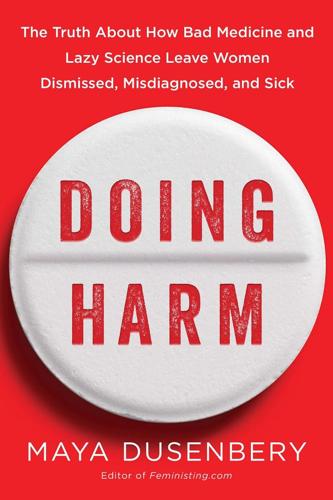
Doing Harm: The Truth About How Bad Medicine and Lazy Science Leave Women Dismissed, Misdiagnosed, and Sick
by
Maya Dusenbery
Published 6 Mar 2018
Frederick Hollick, The Diseases of Woman, Their Causes and Cure Familiarly Explained (New York: Excelsior Publishing House, 1849), quoted in Ehrenreich and English, For Her Own Good, 132. “give woman all her characteristics . . . G. L. Austin, Perils of American Women or A Doctor’s Talk with Maiden, Wife, and Mother (Boston: Lee and Shepard, 1883), quoted in Rita Arditti, “Women as Objects: Science and Sexual Politics,” Science for the People, September 1974, 9. For a good decade leading up to the twentieth century . . . Ben Barker-Benfield, “The Spermatic Economy: A Nineteenth Century View of Sexuality,” Feminist Studies 1, no. 1 (Summer 1972), 45–74, quoted in Ehrenreich and English, For Her Own Good, 136.

Demanding the Impossible: A History of Anarchism
by
Peter Marshall
Published 2 Jan 1992
Since ‘man is much more of a sex creature than a moral creature’, sex education should be given to recognize the central and beautiful part it plays in life.39 But while Goldman insisted on the ‘free growth’ of the innate tendencies of a child, she did not foresee a time like Godwin and Ferrer when education would become an entirely spontaneous affair. She continued to believe in the creative power of the good teacher: ‘The child is to the teacher what clay is to the sculptor.’40 Sexual Politics Goldman’s arguments on government, revolution and education were invariably clear and perceptive, but her most important contribution to anarchist theory was in giving it a feminist dimension. She was particularly incensed about the status and conditions of women in her day and her outspoken views caused much of her notoriety.
…
M. see Volin Einstein, Albert 620 Eisner, Kurt 414 elections see parliamentary politics, voting Elizabeth of Austria, Empress 449 Ellul, Jacques 75, 619 Elton, Charles 613 Emerson, Ralph Waldo 111, 181, 182–3, 184–5, 497 Engels, Friedrich: authority 26, 45, 302, 350, 616, 655; Bakunin 272, 276, 301, 631; Bookchin on 615; Fourier 152; freedom 37, 609; Goodwin’s influence 211; industrial organization 26, 45; Münzer 93–4; Paris Commune 301; Proudhon 241; revolution 637; State 24–5; Stimer 221–2, 225, 233; utopian socialism 661 England see Britain Enlightenment 4, 74, 80, 115, 147, 585–6, 622, 677, 679, 692; British 129–39 Epicureans 68 Epping Forest commune 494 equality 48–50, 63, 150–1; Bakunin’s view 277, 292–3, 296; Proudhon’s view 255–7; Tucker’s view 391 equilibrium 257, 340 Especifismo 701 Essenes 75 ethics see morality Europe: development of State 18; United States of 33 European Social Forum 698 Evangelical Rationalists 93 evolution: Bookchin’s approach 610, 620; Kropotkin’s work 310, 318–20, 331, 338; Reclus’ view 344 existentialism 579–84 Fabbri, Luigi 352, 449, 451 Fabian Society 380, 490, 641 factory system see industry Fairfax, Thomas 97 Falun Gong 671, 701 family: Huxley’s views 572; Proudhon’s views 253, 260 Fanelli, Giuseppe 276, 280, 446, 453–4 Fanon, Frantz 542 fascism 354, 400–1, 418, 465, 539 Faure, Sébastien: attitude to anarcho-syndicalism 444; authority 43; influence 405; libertarian 641; liberty 36, 37; publications 437, 491; state of nature 14 Fawkes, Guy 200 Federación Anarquista lberia (FAI) 400, 457–60 Federación Ibérica de Juventudes Libertarias (FIJL) 466–7 Federación Obrera Regional Argentina (FORA) 505, 506 Federatión Regional Española 454 federalism: Bakunin’s view 33; Jura watchmakers 311; mutualist plan 7; Proudhon’s views 252–3, 255, 259, 432, 434; Rocker 420; Ruge 479 Federalist Party (Spain) 453 Fédération des Bourses du Travail 236, 442–3 Federation of Anarchists of Korea 528 Fedya (Modest Stein) 397, 407 feminist movement xiv, 5, 134, 256, 406, 557, 671; see also women Fénelon, François de Salignac de La Mothe 114–15, 431 Ferlinghetti, Lawrence 542 Ferrer, Francisco 405, 454, 455, 502 Ferrer school, New York 394 feudalism 4 Feuerhach, Ludwig Andreas 224–5, 233, 263, 267–8, 289 Feyerabend, Paul 503 Fichte, Johann Gottlieb 267, 603, 605 Fifth Estate 503, 684, 690, 692 Le Figaro 530 First International: anarcho-syndicalism 9, 454; Bakunin’s terminology 20; collectivism 435; demise 8, 24, 27, 302, 313; French sections 435; Jura members 311; Marx-Bakunin dispute 241, 264, 201–2, 403; Marx’s anti-anarchism 27; Mill’s view 163; mutualism 7, 431, 435; Proudhon’s influence 235, 259, 431; Spanish 454, 455; workers’ emancipation 9, 307; see also IWMA First World War: Berkman’s activities 394; Bourne on 635; British views 490, 491; Japanese anarchists 524; Kropotkin’s attitude 332, 352–3, 392, 490, 491; Landauer 414; Malatesta 332, 352–3; Nieuwenhuis 485; Read 593; Russell 569; Tucker 391 Flaubert, Gustave 234 Florence congress (1876) 347, 448 Flores Magón, Enrique 507, 510 Flores Magón, Jesús 507, 510 Flores Magón, Ricardo 507, 510–14 Flower Power 545, 601 Foigny, Gabriel de 112–14, 115, 120, 431 Food not Bombs 698 food production 327, 618–20, 627 Ford, Ford Madox 491 Foreman, David 611 Foucault, Michel 445, 537, 584–6, 649, 677, 678, 679 Fourier, Charles 140–52; free society 143, 164; influence 149, 237–8, 242, 479, 604; libertarian 143; Morelly 118; phalansteries 109, 150–1, 238, 328, 435; printing of works 237; ‘Universal Harmony’ 238 Fox, George 103, 104, 107 Frant-Tireur 583 France 431–45; May Revolution (1968) 546–9, 659; Proudhon’s patriotism 255; student movement 546–8; see also Enlightenment, French Revolution, Paris Francis of Assist, St 79–80, 83 Franco, Francisco: anarchists against 395, 401, 421, 465; death 467; rebellion 23, 460; republican stand against 400–1; victory xi, 539 Franco-Prussian War 285, 304, 332 Frankfurt School 307 Franklin, Benjamin 497 Fraye Arbeter Shtime 501 The Free Ones 221–3 free society 625–9; Bakunin 298–9; Bookchin 609; Fourier 143, 164; Godwin 213–18, 231; Goodman 598; Kropotkin 326–31; Landauer 598; Reclus 342 Free Spirit, Brethren of the 87–9; millenarian movement 78, 95, 661; successors 93, 96, 102, 107, 440, 487; women’s position 104 ’Free University’ collective 494 freedom: absolute 36–7, 39, 292; anarcho-capitalist definition 564; Bakunin’s view 292–5, 299; civil 37, 40; of expression 208; Fourier, 150; Godwin’s View 213–4; Hegel 227; Humboldt 154; liberty and 36–7, 591–2; Marshall 703; Mill 164–5; Nietzsche 159–60; of personality 83–4; Proudhon 243, 261–2; Read 590–2; Rousseau’s treatment 127; Sartre’s view 580; Spencer 167–8; of thought 208; Stirner 227; Tolstoy 376; Winstanley’s definition 101; Zen Buddhist concept 63 Freedom 168, 332, 350, 353, 490, 492, 567, 676 Freedom Press 315, 348, 492, 588, 594 Freeganism 689 Freeman 183 Frei Arbeiter Union (FAU) 481, 483 Freie Vereinigung Deutscher Gewerkschaften 481 Freiheil 393, 397, 416, 480–1, 489, 499, 500 Freire, Paulo 518 French Anarchist Federation 548 French Revolution (1789) 431–3; anarchism in 4; De Sade 144, 146–7; effects in Britain 77, 134, 136, 191, 195; Equality and Liberty 255; Morelly’s influence 118; Terror 146, 148, 218 French Revolution (1848) 152, 243, 258, 270–1, 434, 626, 658 Freud, Sgimund 225, 541, 572 Freudian view of anarchism xiv, 591 Frick, Henry Clay 394, 397–8, 499 Friedman, David 560–1, 642 Friends of Durruti 466 Fromm, Erich 41 G8 summits 698 Gagging Acts (1794) 191, 196 ’Gaia’ hypothesis 606 Galatians, Epistle to 74 Galleani, Luigi 501 Gallo, Charles 438 Gambuzzi, Carlo 274, 446 Gandhi, Indira 534 Gandhi, Mohandas 422–7; anarchism 634; Carpenter’s influence 169; civil disobedience xi, 82; individual 429; influence 83, 478, 529, 530, 571, 572, 584, 637, 682; Kropotkin’s influence 335; moral force 650; pacifism 6, 634, 658; property 531; Sarvodaya movement 382, 422, 531–5, 700; Thoreau’s influence 185, 188; Tolstoy’s influence 381, 382 Garibaldi, Giuseppe: influence 345, 346, 446–7, 632, 637; League for Peace and Freedom 279; Proudhon’s view 255 Gasan 64 Gaulle, Charles de 445, 546, 548 Geddes, Patrick 577 Gemeinschaft 411 General Association of Hunan Workers 522 General Will 18, 119, 127 Genesis, Book of 74, 94 Geneva, Calvinist 112 Geneva Congress (1867) 279 Geneva Congress (1866) 27 George, Henry 376, 378, 521 George’s Hill colony 97–100, 103, 386 Germany 470–83; Landauer’s work; libertarians 153–62; Peasants’ Revolt (1525) 89, 93; Proudhon’s influence 236; regime 331–2; student movement 545–6; war preparations 332; see also Nazism Germinal 417 Gesellschaft 411 Gill, Eric 588 Ginsberg, Allen 542 Girondins 4, 431–2 Giuliani, Carlo 698 Global Justice Movement 697–8 Glorious Revolution (1688) 129 God, views on: anarchists 80–2, 85; Bakunin 288–9; Free Spirit beliefs 87; Huxley 572; Left-Hegelians 223–4, 289; Nietzsche 81, 157, 220; Proudhon 249; Tolstoy 369–70; Winstanley 98; see also religion Godwin, Mary 195, 197, 198–9 Godwin, William 191–219; anarchist position ix, xiii, 5, 7, 79–80, 163, 487–8, 694; authority 43, 44, 647; Burke’s arguments 134; censure 46, 217; civil liberty 40; conformity 177; contracts 23; co-operation 40, 625; democracy 22; Diggers 101–2; economics 210–12, 625; education 17, 197, 212–13, 258, 366, 405, 642; equality 49, 279; ethics 203–6, 321; Fénelon’s influence 114; free society 213–18, 231; freedom and licence 37; government 18, 19, 189, 206–8; Greek influence 71; human nature 201–3, 317, 323, 595, 643; influence 375, 524, 572; justice 195–6; law and punishment 29–31, 207–8; marriage 196–7, 205–6, 215; means of reform 218–19; morality 39, 205; motivation 156; nature 16, 39; necessity 200–1, 641; patriotism condemned 32–3; philosophy 200–1; politics 206–10, 657; private judgement 205, 281, 294; property 76, 210–11, 531; public opinion 31, 217, 329, 338, 372, 638, 650, 651; revolution 218, 630, 633; Rousseau 124, 127–8, 193; society 12, 17, 213–18, 625, 628; State 372, 638; Swift’s influence 130, 132, 193; truth 39, 164, 202, 205, 252, 592; violence 658 golden age 15, 77 Goldman, Emma 396–409, 502, 673, 691, 705; Berkman relationship 394–5, 397–8, 407, 634; Bolshevism 334, 473, 477; feminist anarchism 5, 587; human nature 642, 643; imprisonment 398; influence 409, 522, 556; Mother Earth 393, 394, 398–9, 500; Nietzsche 155, 157, 162; philosophy 401–6; Russell relationship 567–8; sexual politics 406–9, 481; sexuality 323; Spanish anarchists 465; Spencer 165; Stirner 221, 233; syndicalism 444; Tucker 391; values 39, 622; violence 634 Golos Trutla 470–1 Goltz, Baroness von der 223 Gonzalez, Eduardo 515 Goodman, Paul 597–601, 659, 676, 695; communities 502, 541; elections 657; Kropotkin’s influence 335; on power 46 Goodman, Percival 597 Gorbachev, Mikhail 478 Gori, Pietro 449, 505 Gospels 75, 369, 383 government 17–22; Comfort’s view 596; Godwin’s view 18, 19, 189, 206–8, 658; Goodman’s account 599; Kropotkin 325; Locke 129; Mill 165; Paine 137–8; Proudhon 247, 254; representative 325; revolutionary 297; Rousseau 124; self- 38; Spencer 166–7; Tolstoy 373–7, 658; Tucker 390; Wilde 177; Winstanley 100–1; see also State Gramsci, Antonio 451 Grand National Consolidated Trades Unions 488, 491 Grasmurzelrevolution 483 Grave, Jean: anarcho-syndicalism 444; attitude to Bohemians 440; First World War 353; influence 510; Kropotkin correspondence 332; law 20; periodicals 437, 439; violence 438 Gray, Alexander 661 Greece: anarchists 700; classical 4, 18, 66–73; influence on Bookchin 604, 605, 608, 612 Green Anarchist 493 Green Anarchy 680 Green Movement: anarchist position xii, 6, 671, 672, 688–9, 691; Bookchin 555, 602, 621–2; Cohn-Bendit 483, 549, 555; Van Duyn 486 Greene, William B. 236, 387, 498 Greer, Germaine 494 Gregg, Richard 427 Gregory, Walter 462 Grey, Charles, 2nd Earl 200 Groen Links 486 De Groenen 486 Grootveld, Robert Jaspar 485, 553 Gropius, Madame 221, 223 Grün, Karl 479–80 Guattari, Felix 679, 696 Guérin, Daniel xii, 12, 445, 547, 641, 674 Guevara, Che: Cuban Revolution 516–18; influence 518, 527, 580; ‘new Bakunin’ 308, 517, 542 guild socialism 236 guilds 323 Guillaume, James: Bakunin association 280, 283, 311, 436; Basel Congress 282; distribution 437; International Alliance 280–1, 302; Jura Federation 435; Kropotkin friendship 311 Guillotine Society 524 Gulf War 579, 699 Gutkind, E.

Meat: A Benign Extravagance
by
Simon Fairlie
Published 14 Jun 2010
Yet beyond factory-farmed chicken lie species of lab-cultured meat that the writers of Leviticus never even dreamed of, and that is where the interests of agribusiness and of vegans may one day converge. 1 Ponting, Clive (1991), Green History of the World, Sinclair-Stevenson; Harris, Marvin (1977), Cannibals and Kings, Random House, p 34. 2 Watson, Lyall (2004), The Whole Hog, Profile Books, p 125. 3 Spencer, Colin (1993), The Heretic’s Feast: A History of Vegetarianism, Fourth Estate. No support is given for this assertion. 4 Harris, Marvin (1986), Good To Eat, Allen and Unwin, pp 47-66. 5 Watson, op cit. 2, p 186. 6 Rifkin, Jeremy (1992), Beyond Beef, Dutton, p 41. 7 Watson, op cit. 2, p 140. 8 Ibid, p 143. 9 Cited in Adams, C (2000), The Sexual Politics of Meat, Continuum Publishing, p 169. 10 Watson, op cit. 2, p 166. 11 Ibid., p 166. 12 Ross, E (1980), ‘Patterns of Diet and Forces of Production: An Economic and Ecological History of the Ascendancy of Beef in the US Diet’, in E Ross (ed), Beyond the Myths of Culture: Essays in Cultural Materialism, Academic Press. 13 Harris, Marvin (1987), The Sacred Cow and the Abominable Pig, Touchstone, p 126. 14 Steinfeld, H et al (2006), Livestock’s Long Shadow, FAO.

Future Politics: Living Together in a World Transformed by Tech
by
Jamie Susskind
Published 3 Sep 2018
An alternative view is that politics can be found almost everywhere,4 not just in the public realm but in private too: between friends and colleagues, and within families; in clubs, teams, and religious establishments; in government but also in art, architecture, science, literature, and embedded in language itself. Politics is present wherever there is cooperation, conflict, or control; or wherever it is possible that some particular social relation might be ordered differently, from workplace politics to sexual politics. On this view, politics isn’t something you can avoid or ignore. Politics can therefore be understood narrowly or broadly, with a range of perspectives in between. And within every perspective there will always be a clutch of hotly contested sub-perspectives. One area of controversy, for instance, is whether a dictatorship can be called a political system.
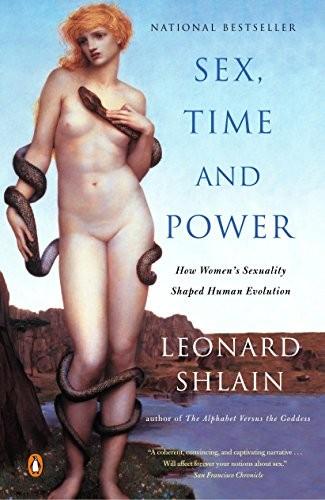
Sex, Time, and Power: How Women's Sexuality Shaped Human Evolution
by
Leonard Shlain
Published 2 Aug 2004
Goodall, 1986, p. 484. 10. Smuts et al., 1987, pp. 385–99. 11. Quoted in Mithin, 1996, p. 123. 12. Bickerton, 1995, p. 65. 13. Washington Post, 2002, p. AO1. Bibliography Ackerman, Diane. 1994. A Natural History of Love. New York: Random House. Adams, Carol J. 1992. The Sexual Politics of Meat: A Feminist-Vegetarian Critical Theory. New York: Continuum. Aiello, L., and R. I. M. Dunbar. 1993. “Neocortex Size, Group Size, and the Evolution of Language,” Current Anthropology 34: 184–93. Aiello, L., and P. Wheeler. 1995. “The Expensive Tissue Hypothesis,” Current Anthropology 36 (no. 2): 199–221.

Stranger Than Fiction: Lives of the Twentieth-Century Novel
by
Edwin Frank
Published 19 Nov 2024
Journeys Through the Labyrinth: Latin American Fiction in the Twentieth Century. London: Verso, 1989. Mazower, Mark. Dark Continent: Europe’s Twentieth Century. New York: Alfred A. Knopf, 1999. Meyers, Jeffrey. D. H. Lawrence: A Biography. New York: Alfred A. Knopf, 1990. Meyers, Jeffrey. Hemingway: A Biography. New York: Harper and Row, 1985. Millett, Kate. Sexual Politics. New York: Doubleday. 1970. Moore, Harry T., ed. The Collected Letters of D. H. Lawrence. Two Volumes. New York: Viking Press, 1962. Nabokov, Vladimir. Lectures on Literature. New York: Mariner Books, 2002. Nabokov, Vladimir. Lectures on Russian Literature. New York: Mariner Books, 2002. Nadeau, Maurice.

The Mad Man: Or, the Mysteries of Manhattan
by
Samuel R. Delany
Published 1 Jun 2015
It seemed reasonable to let Hasler, since he was the subject of the essay, speak for us both. As to Mike’s more recent history, yes, I was reticent. But much of it was there for (as they say) those who could read. Five days after I sent it off, it was accepted by a Canadian magazine of radical sexual politics out of Toronto called Umbilicus. Later, I wrote it up in a brief and rather stripped letter, with pret— ty much nothing personal in it at all as to incident, urges, or emotions—almost as I’d explained it to Irving that morning. Only I put it in an envelope and sent it to Almira Adler at Breakers’ Point.

Cultural Backlash: Trump, Brexit, and Authoritarian Populism
by
Pippa Norris
and
Ronald Inglehart
Published 31 Dec 2018
The majoritarian principles at the heart of populism put pressures on individual rights, pluralistic diversity, and tolerance of minority dissent.80 The United States is a resilient democracy but under the Trump administration, the country has been torn apart in the bitter clash between the dystopian vision and divisive rhetoric of the president and his fervent supporters at campaign rallies, on the one side, and the forces of the resistance on numerous issues, on the other side. Divisions are clearest over the investigation into Russian meddling in American elections, reforms to immigration policy and the fate of the Dreamers, the decimation of the Environmental Protection Agency, and culture wars over racial, religious, and sexual politics. It has been estimated that over 8,700 protests occurred in the United States during 2017, involving up to nine million people, with 89 percent protesting against Trump or his policies.81 In the UK, as well, Brexit has polarized the electorate and deepened splits within the major parties, with Theresa May’s government deeply divided in negotiating an exit from the EU.

The Rough Guide to Paris
by
Rough Guides
Published 1 May 2023
Documentary account of breadline living in the 1930s – Orwell at his best. Jean Rhys Quartet. A beautiful and evocative story of a lonely young woman’s existence on the fringes of 1920s Montparnasse society. In the same vein are the subsequent After Leaving Mr Mackenzie and Good Morning, Midnight, both exploring sexual politics and isolation in the atmospheric streets, shabby hotel rooms and smoky bars of interwar Paris, all in Rhys’s spare, dream-like style. French (in translation) Honoré de Balzac The Père Goriot. Biting exposé of cruelty and selfishness in the contrasting worlds of the fashionable faubourg Saint-Germain and a down-at-heel but genteel boarding-house in the Quartier latin.

Debt: The First 5,000 Years
by
David Graeber
Published 1 Jan 2010
Dublin: Dublin Institute for Advanced Studies. Kessler, David & Peter Temin. 2008. “Money and Prices in the Early Roman Empire.” In The monetary systems of the Greeks and Romans (W. V. Harris, editor), pp. 137-160. Oxford: Oxford University Press. Keuls, Eva. 1985. The Reign of the Phallus: Sexual Politics in Ancient Athens. Cambridge: Harper & Row. Keynes, John Maynard. 1930. A Treatise on Money. London: MacMillan. _____. 1936. The General Theory of Employment, Interest and Money. Keyt, David. 1997. Aristotle: Politics Books VII and VIII. Oxford: Clarendon Press. Khan, Mir Siadat Ali. 1929.
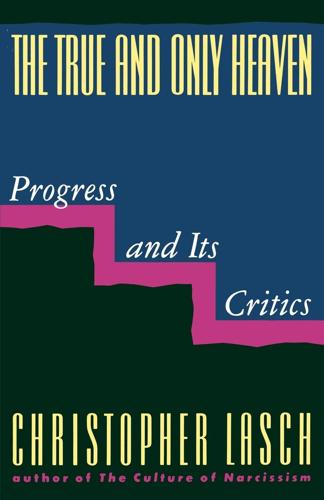
The True and Only Heaven: Progress and Its Critics
by
Christopher Lasch
Published 16 Sep 1991
Like a number of other recent critics, Michael objects to the picture of Emerson as the "triumphant spokesman of self-reliance," stressing instead his "skepticism concerning the coherence and persistence of his own identity." The problematical standing of the concept of selfhood, the "volatility" and "unrelenting doubleness" of Emerson's language, and the self-referential quality of language in general figure prominently in Eric Cheyfitz, The Trans-Parent: Sexual Politics in the Language of Emerson (1981). Julie Ellison, Emerson's Romantic Style (1984), also assigns central importance to the "problem of language" and its "reflexivity." If these studies make Emerson sound too postmodern, too much like a nineteenth-century Derridean, they do help to correct the impression left by the scholarship of the fifties and sixties, that Emerson's work declined in force and visionary eloquence as he moved from the optimism of Nature to the pessimism of "Fate."

Capitalism and Its Critics: A History: From the Industrial Revolution to AI
by
John Cassidy
Published 12 May 2025
You look forward to a better aspect of society, where the principle of benevolence shall supersede that of fear, where restless and anxious individual competition shall give place to mutual co-operation and joint possession; where individuals in large numbers, male and female, forming voluntary associations, shall become a mutual guarantee to each other for the supply of all useful wants … where perfect freedom of opinion and perfect equality will reign amongst the co-operators; and where the children of all will be equally educated and provided for by the whole.11 Thompson also noted that he had encouraged Wheeler to write about sexual politics herself—to “take up the cause of your proscribed sex … in your own name.” The “leisure and resolution to undertake the drudgery of the task were lacking,” he added.12 This statement doesn’t entirely clear up the question of why Wheeler didn’t write her own book. Sexism may well have played a role.

How the Mind Works
by
Steven Pinker
Published 1 Jan 1997
Having concentrated food to offer one’s offspring changes the relative payoffs for males between investing in their young and competing with other males for access to females. The robin bringing a worm to the nestlings reminds us that most animals that provision their young do so with prey, the only food that repays the effort to obtain it and transport it. Meat also figures into sexual politics. In all foraging societies, presumably including our ancestors’, hunting is overwhelmingly a male activity. Women are encumbered with children, which makes hunting inconvenient, and men are bigger and more adept at killing because of their evolutionary history of killing each other. As a result, males can invest surplus meat in their children by provisioning the children’s pregnant or nursing mothers.
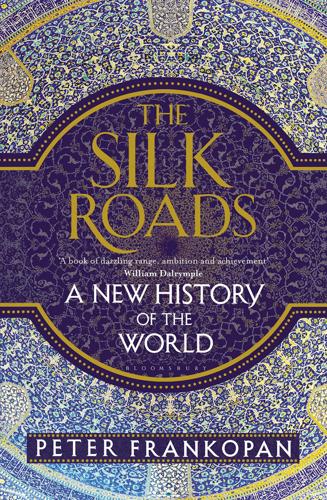
The Silk Roads: A New History of the World
by
Peter Frankopan
Published 26 Aug 2015
Flynn and A Giráldez, ‘Arbitrage, China and World Trade in the Early Modern Period’, Journal of the Economic and Social History of the Orient 6.2 (1995), 201–21. 87C. Clunas, Empire of Great Brightness: Visual and Material Cultures of Ming China, 1368–1644 (London, 2007); Brook, Confusions of Pleasure. 88The Plum in the Golden Vase, or, Chin P’ing Mei, tr. D. Roy, 5 vols (Princeton, 1993–2013). See here N. Ding, Obscene Things: Sexual Politics in Jin Ping Mei (Durham, NC, 2002). 89C. Cullen, ‘The Science/Technology Interface in Seventeenth-Century China: Song Yingxing on Qi and the Wu Xing’, Bulletin of the School of Oriental and African Studies 53.2 (1990), 295–318. 90W. de Bary, ‘Neo-Confucian Cultivation and the Seventeenth-Century Enlightenment’, in de Bary (ed.), The Unfolding of Neo-Confucianism (New York, 1975), pp. 141–216. 91The Selden Map itself may have been captured in this way, R.

Palo Alto: A History of California, Capitalism, and the World
by
Malcolm Harris
Published 14 Feb 2023
iii Without getting too far afield into psychologism, it’s worth noting that Lewis Terman’s young adulthood was marred by a long and debilitating course of tuberculosis, requiring his move to the mild California climate in the first place. For more on the era’s conflicted relationship with genius, see Peter Hegarty, Gentlemen’s Disagreement: Alfred Kinsey, Lewis Terman, and the Sexual Politics of Smart Men (University of Chicago Press, 2013). iv As we’ll see in a later section, this generation of white-collar men developed an unfamiliarity with the typewriter so severe that it may well have delayed the personal computer for a decade. v The validity problems with the experiment are too numerous and basic to list (see Stephen Jay Gould, The Mismeasure of Man, Reissued [Norton, 1993], 192–233), but it’s worth noting that Lewis Terman saw the army results as damaging to the hypothesis of white superiority because white recruits scored so badly, absolutely if not relative to other races.

Dhalgren
by
Samuel R. Delany
Published 31 Dec 1973
Tarzan, however, so often the only blue-eyed blond among the apes (now the official name for the sub-group of five out of the fifteen/sixteen blacks in the nest [Raven, Jack the Ripper, Thruppence, Angel, Spider]) polarizes them in a very different way. His fawning fascination, his near-belligerence, and general lack of use for anyone white makes it impossible to see him/them without a whole aura of sexual/political resonances, which they carry like their lights. (Two thoughts-First:) Even so, everyone seems more or less able to absorb the situation with tolerance and hardly a comment. (Second:) With all these wacked-out spades, there doesn't seem to be one among them, man or woman, in a similar position with a white group (Glass, triumvirate with Spitt and Copperhead, seems a very different thing.
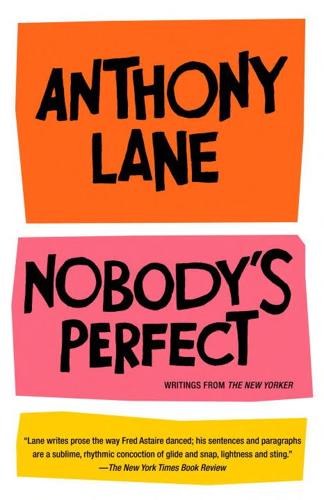
Nobody's Perfect: Writings From the New Yorker
by
Anthony Lane
Published 26 Aug 2002
By the end of her first day, she has invited her old flame Tom Sanders up to her office. (“You still partial to dry chardonnay?”) Before he knows what hit him, she has his pants open and is preparing to do it in both LAN and WAN configurations. Tom runs scared, her wrath still ringing in his ears. Game on. Disclosure is Jacqueline Susann dressed up as modern sexual politics. No doubt Crichton decided that by reversing the roles (a dicey move in itself, implying that harassment by women is not just morally but statistically equivalent to harassment by men) he would be freshening the debate. In the event, it merely makes you wonder what turns him on: whether he just enjoys writing about women like Meredith Johnson—T. rex in sling-backs.

The Rough Guide to Egypt (Rough Guide to...)
by
Dan Richardson
and
Daniel Jacobs
Published 1 Feb 2013
Born in Cairo, Souief was educated in Egypt and England. Her semi-autobiographical novels are acclaimed for their sensibility: In the Eye of the Sun explores love and destiny in the Middle East during the 1960s and 1970s; The Map of Love (shortlisted for the Booker Prize) and I Think of You focus on sexual politics. Bahaa Taher Aunt Safiyya and the Monastery. Beautifully crafted novella set in a village in Upper Egypt, where a blood feud is challenged by a Muslim farmer and a Coptic monk. FOREIGN FICTION Will Adams The Alexander Cipher; The Exodus Quest. A pair of pacey thrillers featuring Egyptologist Daniel Knox on the trail of the long-lost tombs of Alexander the Great and Akhenaten.

Betrayal of Trust: The Collapse of Global Public Health
by
Laurie Garrett
Published 15 Feb 2000
The Kinsey reports were later followed by the far more controversial studies by William Masters and Virginia Johnson, Sexual Response in 1966 and Human Sexual Inadequacy in 1970. 281. For examples, see Friedan, B., The Feminine Mystique. New York: Norton, 1963; Gitlin, T., The Sixties: Years of Hope, Days of Rage. New York: Bantam Books, 1987; Millet, K., Sexual Politics. New York: Simon & Schuster, 1990; Greer, G., The Female Eunuch. New York: McGraw-Hill, 1971. 282. Garrett, L., 1994, op. cit. 283. Minnesota Department of Health, Healthy People: The Minnesota Experience. Minneapolis: Minnesota Center for Health Statistics, 1982. 284. I have written extensively elsewhere about the STD trends that preceded emergence of AIDS.

The Rough Guide to Brazil
by
Rough Guides
Published 22 Sep 2018
Thomas Skidmore Politics in Brazil 1930–1964; The Politics of Military Rule in Brazil 1964–85 (Oxford UP). The former is the standard work on Brazilian politics from the rise of Vargas until the 1964 military takeover. The latter continues the story to the resumption of Brazil’s shaky democracy. HEALTH, GENDER AND SEXUALITY Herbert Daniel and Richard Parker Sexuality, Politics and AIDS in Brazil (Falmer Press). Excellent, clearly written history of AIDS in Brazil, covering the way the epidemic has developed in relation to popular culture at one end and government policy at the other. There are bright spots – Brazilian TV health education slots on AIDS may be the best in the world, completely frank, and often screamingly funny – but this book will help you understand how this coexisted with a scandalous lack of supervision of blood banks.

Nixonland: The Rise of a President and the Fracturing of America
by
Rick Perlstein
Published 1 Jan 2008
How to Win,” NYT, May 13, 1956. “are everywhere—in factories, offices, butcher shops”: Lurie, Running of Richard Nixon, 95. 1950 Helen Gahagan Douglas campaign: Brodie, Richard Nixon, 232–45; Lurie, Running of Richard Nixon, 91–98; Greg Mitchell, Tricky Dick and the Pink Lady: Richard Nixon vs. Helen Gahagan Douglas—Sexual Politics and the Red Scare, 1950 (New York: Random House, 1950). “I will not break bread with that man!”: Brodie, Richard Nixon, 244. Vice-presidential run and Checkers Speech: Greenberg, Nixon’s Shadow, 31–35; David Broder and Stephen Hess, The Republican Establishment: The Present and Future of the GOP (New York: Harper & Row, 1967), 152; Stanley Kutler, The Wars of Watergate: The Last Crisis of Richard Nixon (New York: W.

The Defence of the Realm
by
Christopher Andrew
Published 2 Aug 2010
After being awarded the PhD, he had, remarkably, combined secret work for Comintern and the OGPU with open collaboration with the German Communist psychologist and sexologist Wilhelm Reich, who was then engaged in an attempt to synthesize the work of Marx and Freud and later earned a probably undeserved reputation as ‘the prophet of the better orgasm’. Deutsch publicly assisted Reich in the ‘sex-pol’ (sexual politics) movement, which ran clinics designed to bring birth control and sexual enlightenment to Viennese workers, and founded a small publishing house, Münster Verlag (Dr Arnold Deutsch), to publish Reich’s work and sex-pol literature. At the time when he moved to London in April 1934, Deutsch was under surveillance by the ‘anti-pornography’ section of the Vienna police.41 Even if, during Deutsch’s period in England, the Security Service had known of his earlier involvement with Reich and the sex-pol movement, it would probably have regarded his unusual career as improbable cover for a Soviet spy.
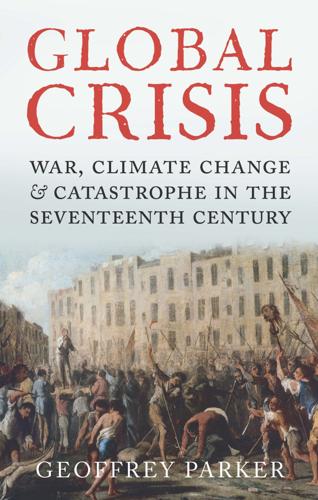
Global Crisis: War, Climate Change and Catastrophe in the Seventeenth Century
by
Geoffrey Parker
Published 29 Apr 2013
L., The paradise myth in eighteenth-century Russia: Utopian patterns in early secular Russian literature and culture (Stanford, 1991) Baehrel, R., Une croissance: la Basse-Provence rurale (fin XVIe siècle – 1789). Essai d'économie historique statistique (Paris, 1961) Baer, M. D., ‘The Great Fire of 1660 and the Islamization of Christian and Jewish space in Istanbul’, IJMES, XXXVI (2004), 159–81 Baer, M. D., ‘Death in the hippodrome: sexual politics and legal culture in the reign of Mehmet IV’, P&P, CCX (2011), 61–91 Baer, W. C., ‘Stuart London's standard of living: re-examining the Settlement of Tithes of 1638 for rents, income, and poverty’, EcHR, LXIII (2010), 612–37 Bailey, C. D. A., ‘Reading between the lines: the representation and containment of disorder in Late Ming and Early Qing legal texts’, Ming Studies, LIX (2009), 56–86 Baillie, M.

1,000 Places to See in the United States and Canada Before You Die, Updated Ed.
by
Patricia Schultz
Published 13 May 2007
Lest We Forget HOLOCAUST MUSEUM Washington, D.C. In Europe, between 1939 and 1945, government-sponsored racism and intolerance were responsible for the murder of 6 million Jews, 1.9 million Poles, about 250,000 Roma and Sinti gypsies, nearly 250,000 handicapped people, and hundreds of thousands of homo-sexuals, political dissidents, members of minority religious groups, and prisoners of war. We must never forget. And we must never allow it to happen again. That’s the message of the U.S. Holocaust Memorial Museum, which opened in 1993 just south of the Washington Monument. Architect James Ingo Freed’s design for the building recalls both the Jewish communities the Nazis destroyed and the ghettos and extermination camps they built, using red brick, glass, and dark industrial steel to conjure an image of time and place.